#Blackheath girls school
Explore tagged Tumblr posts
Text
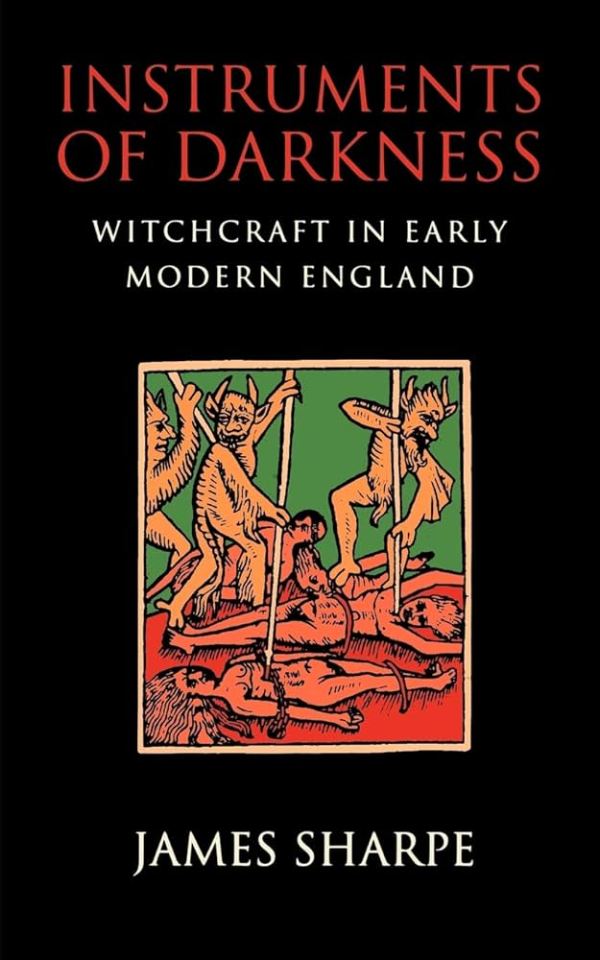
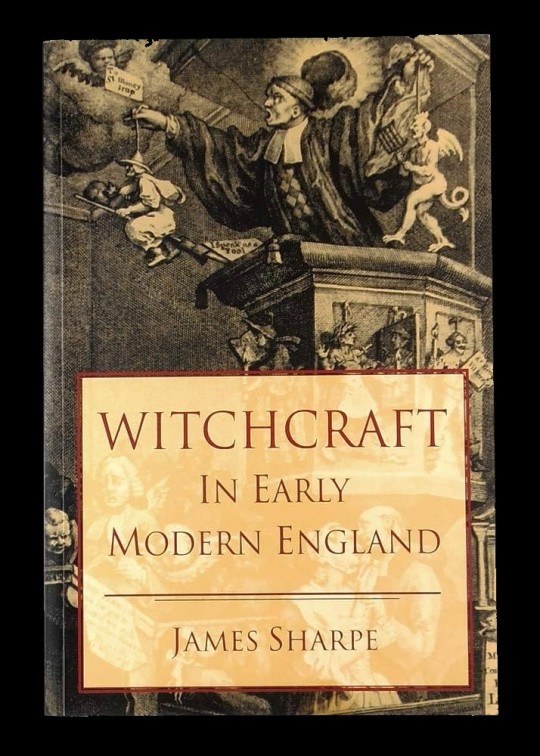
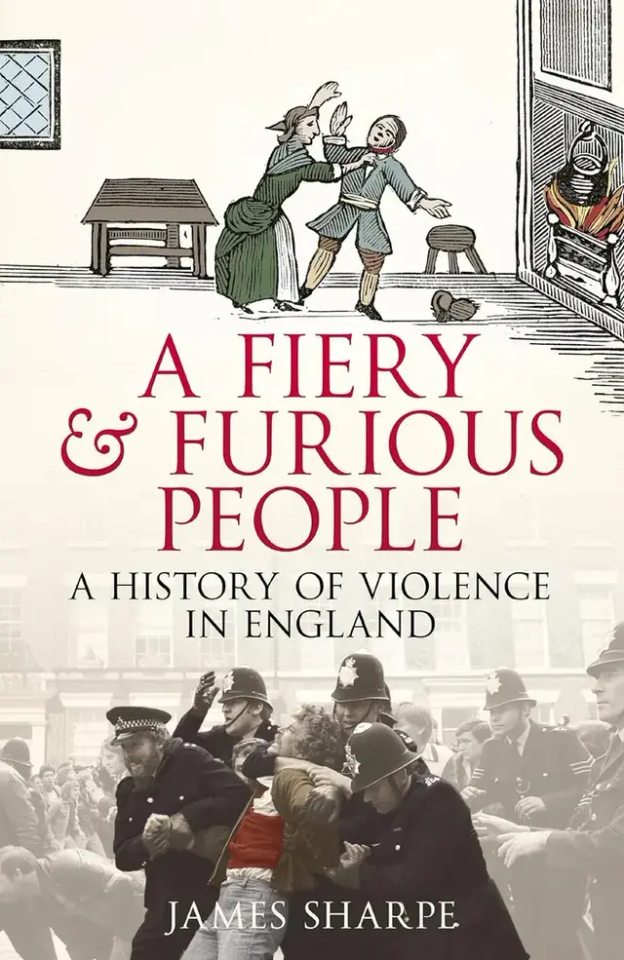
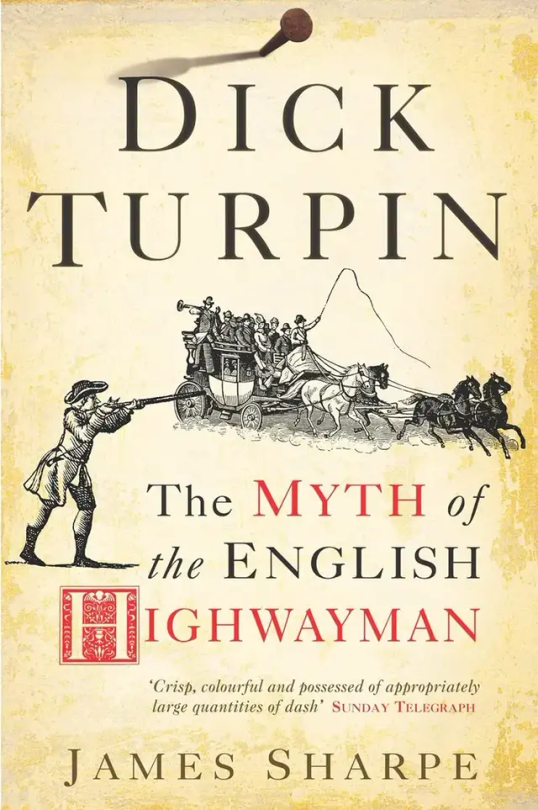
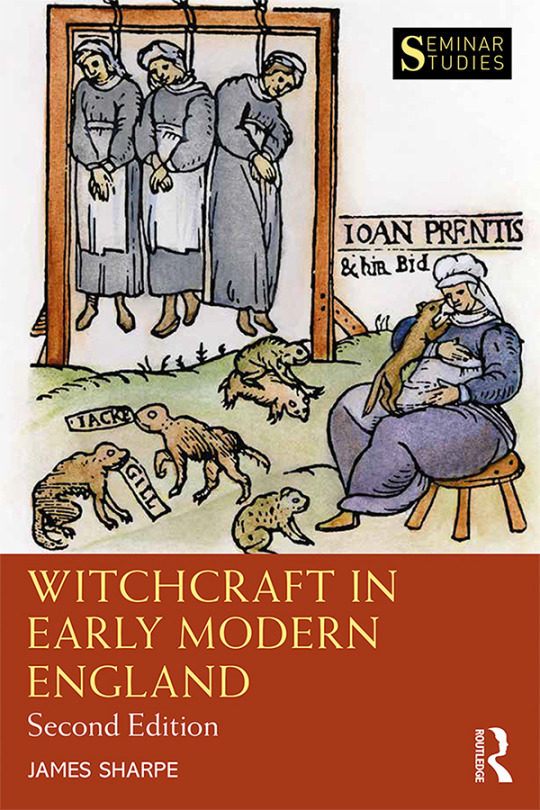
In the mid-1990s the historian James Sharpe, who has died aged 77, wrote Instruments of Darkness, a book on witch-hunting in England that reopened a field of research that had been in the doldrums for a generation after the Welsh historian Keith Thomas’s brilliant Religion and the Decline of Magic (1971). Published in 1996, Jim’s book helped to make the study of British witchcraft what it is today: one of the most lively areas of historical writing.
Earlier historians had argued that whereas witch-hunting on the European continent was fantastical, dominated by beliefs about the devil, English witch-hunting was comparatively rational and down-to-earth, centred on beliefs about the practical harm that witches caused to people and animals. Jim showed that this was nonsense, and that English witch-hunting was also powered by fear of the devil and followed much the same pattern as many other European countries.
An archival hound, Jim surveyed every possible paper-trail in the course of his research, uncovering valuable sources for those who have come after him, including via his copious footnotes and bibliographies. In addition, he went to many conferences on the continent and made it his business to meet the leading scholars of crime and witchcraft, always developing the European dimension of his work.
He loved the detail – he was fascinated, for instance, by the phenomenon of familiars in English witchcraft, creatures who suckled on witches and carried out their bidding, one of the few features that do indeed set English witch-beliefs apart from the continent. He noted them all: Bid the ferret, a lamb, another creature that was carefully kept in a basket with wool, and a white-spotted cat ominously named Sathan.
Perhaps his most appealing book is his history of Anne Gunter, published in 2000, about a 17th-century girl who claimed to be possessed but was unmasked as a fraud. It is a classic of its kind, a marvellous micro-study that reveals the inner world of an unhappy individual who found herself used for other people’s agendas and who, Jim argued, just wanted love and attention. The book, Bewitching of Anne Gunter, explores the mindsets of the doctors, ministers of religion and even the monarch himself, James I, who did not believe Anne’s stories.
As Jim was well aware, at another level it is also a story about fathers – and patriarchal figures of all kinds – who fail their children. It is a gripping read, with lots of humour, and along the way speculates on the origins of football. In the style of a 17th-century broadside Jim gave the book the wonderful sub-title, A Horrible and True Story of Deception, Witchcraft, Murder and the King of England – wording that led the Bavarian State Library in Munich to refuse twice to buy it, on the grounds that it simply could not be an academic book.
Jim followed up with Dick Turpin: the Myth of the English Highwayman (2004), another fantastic read, and then A Fiery and Furious People: a History of Violence in England (2016), which upturned the idea of the peaceable phlegmatic English character.
This was a return to earlier preoccupations, for Jim started out as a historian of crime. From 1983 on he wrote a series of path-breaking books on the history of crime in the British Isles in the 16th and 17th centuries, inspiring others to follow in his wake.
In a field dominated by Tudor and Stuart monarchs and their courts, Jim brought ordinary people into history, in all their variety, by showing just what could be done with court records of crime. These rich sources have revolutionised how we write history because they take us as close as we can to the voices of the lower classes in the past, and Jim was one of the first to realise this.
Jim was born in Lewisham, south-east London, to James, a labourer, and Margaret, a cleaner. At Colfe’s school, in Blackheath, he won a place at Oxford University, where he did a history degree and then a doctorate under Thomas’s supervision. He spent all his career, from 1973, as a history lecturer at the University of York, where he was a marvellous and generous teacher and rose to be professor before retirement in 2016.
York became the go-to place for social history, with the three Jims, Jim Walvin, Jim McMillan and Jim Sharpe, all doing exciting new work on slavery, women’s history and crime respectively. He adored teaching and had a wonderful line in dry humour; his students all knew how proud he was of them.
He is survived by his wife, Krista (nee Cowman), whom he married in 1993, and their children, Guy and Freddie.
🔔 James Anthony Sharpe, historian, born 9 October 1946; died 13 February 2024
Daily inspiration. Discover more photos at Just for Books…?
9 notes
·
View notes
Text
Monday Writings - 23rd September 2024
23rd September
Excerpt from: Dubbo and Jane Johnson’s Genie – Chapter 15: Resolving the Distortion
Monday, 23 September 1996
“Lithium atoms, Magnesium atoms, Helium atoms?” Anna Marie Alwyn asked.
“Yes. The fission reaction might have enough energy to get rid of the Distortion,” Daniel Stanton said.
They were in Anna Marie’s house looking up at flashes in the sky. They didn’t realise they were being caused by a starship using different methods to try to get rid of the Distortion (which had been distorting Dubbo’s street layout since the sun had come up when someone had unconsciously wished for it).
The car labelled DS978 (and which belonged to Daniel’s parents) stopped outside the Manera Heights Plaza.
“Ok Jane; this should be close to where you are going,” Adam Greene said.
Jane Johnson got out of the car. “Thanks, Adam,” she said.
Adam drove off and Jane went into the supermarket to have lunch.
It was now 12:30.
Shannon McIntosh left the Odgen’s. “Liz, If I’m not back in an hour, would you look for the opal?”
“I shall,” Liz Blackheath responded.
“Cool,” Shannon said as she headed off.
At the Alwyn’s house, Daniel’s brother, Richard, arrived there. “Is Mum here too?” Daniel asked.
“She was stuck at the Lawson’s house by this Distortion,” Richard said.
“Got it,” Daniel said, still a little concerned.
Not long after leaving the Manera Heights Plaza, Jane found her house. She entered and found her sister, Mel, listening to the radio.
Excerpt from: Mysteries of Aurora
“The Information Desk to start with, then I’ll head to the Nordic Section. It’s supposed to hold most of the codices from that era.”
“Good idea.”
Freya was also curious about the Library. She arrived at one of the eastern entrances. “I guess this dates from the 20th Century,” she murmured as she tried to shield herself from the reflection off of the expanse of glass before her, which was overwhelming despite the fact she was wearing sunglasses. ‘I’ll probably need to use another entrance.’ She took a deep breath, closed her eyes, and listened as she walked towards the door.
“May I help you?” the library assistant asked the colourfully dressed pink-haired girl with her eyes closed before her.
“Yes, directions to the Nordic Art section?” the pink-haired girl asked.
“I could guide you if you want.”
“You don’t need to,” the other said. She then rubbed one of her eyelids. “This is just a habit I have when I get visually overwhelmed,” she added quickly with a tone that implied that she was tired of explaining it.
“Yes, the Library can be overwhelming, especially for new students.”
“Yes. I arrived yesterday.”
“If you go left a dozen paces, there is a tactile map of the library, which is beside a usual map.” The assistant said.
“That will be useful.”
Freya ran her hands over the tactile map of the Library. “I’m here, near the eastern entrance…”
It didn’t take her long to figure out the directions. ‘Easy to remember, either way.’
Olivia and Janara approached the Information desk, near the Grand Atrium. “Let’s see what this says about it,” Olivia said.
“The Grand Atrium dates from the 17th Century and reflects the nostalgia for Roman Aurora of the period.”
“That will be something to look into at some point,” Olivia said.
“You’re looking into the Nordic Era first?”
Excerpt from: Totally Spies – Warehouse 13 –Alex and the Artifact
Beverley Hills High School 2:30 PM
It had been a long day at school. Alex Riviera certainly thought so as she left the school grounds. ‘It’s a good thing we haven’t been WOOHPed today,’ she thought.
Excerpt from: Spider Quinn
Sam squirmed. “What is this? A citizen’s arrest?”
“That’s exactly what it is,” Dafoanairi responded.
“We’ll wait for Spidey to come back, then go out to the waiting cops,” Ninja Talon said.
Back at Casa Lane, the Shadow was ready to leave. “Are you sure?” Trent asked. “Apparently the brownouts have just stopped again.”
“If so, I’ll just do a patrol, just a bit early.”
“I suppose so.”
SpiderGirl switched off the furnace again. ‘Now where’s the cable, so I don’t have to come down here a third time?’ She found it and pulled it out.
SpiderGirl rejoined the others. “Good work,” she said to the others. “The furnace is disconnected,” she called out.
The lights then came back on as the Enigma turned the power back on.
Peterson saw the door open and Ninja Talon leading Sam Elders out, followed by SpiderGirl and Dafoanairi. “Good work,” she said. “The power is back to normal.”
“Glad to hear,” Dafoanairi said.
Ninja Talon handed Sam over.
Peterson cut the ties and cuffed him. “Sam Elders, you are under arrest. You have the right to remain silent. Anything you do say will be used against you in a court of law.”
“I would have gotten away with it, if It wasn’t for those meddling vigilantes.”
The Enigma watched from the roof as Sam was pushed into a car by Peterson. She saw that SpiderGirl and Ninja Talon were walking away to the east. ‘Now’s not the time,’ she thought. She then looked to where Dafoanairi was walking away in the opposite direction. ‘Maybe I’ll follow her instead.’
Dafoanairi realised someone was following her and looked around. She saw the Enigma on a nearby rooftop. “You can come down here,” she said.
“Sure,” the Enigma called out. She climbed down the side of the building.
“I’m glad you and SpiderGirl didn’t come to blows,” Dafoanairi said once the other had joined her.
“There wasn’t much of a chance. There will be another time.”
“Of course.”
“But what did you do, given your inexperience?” the Enigma asked.
“Not much less than you.”
“Good point, but…”
“I helped Ninja Talon subdue him,” Dafoanairi explained.
“Right. Where are you going?”
“A base. I don’t want you following me there.”
“I have my suspicions,” the Enigma said.
“And I have my suspicions about you. Let’s not wreck things by confirming them.”
“I doubt it would wreck things.”
“Maybe not,” Dafoanairi responded. “But it will make things more awkward than they already are.”
The Enigma considered what Dafoanairi had just said. ‘She may be right. Let’s continue as things are and hope we don’t slip up.’ She stopped. “Then I’ll head to the Pizza place,” she said. “See you another time.”
“Bye.”
SpiderGirl and Ninja Talon arrived at the spot beneath the Bridge. They looked around before removing their masks.
“Did Dafoanairi seem familiar to you?” Quinn asked.
“Not really,” Brittany answered. “She was snarky, but many people are snarky. I can be snarky.”
“That’s true, but something reminded me of Daria.”
“Daria? I don’t think so.”
“I don’t think it is either,” Quinn said, not entirely sure. “But it also could be. I still don’t want her finding out.”
“I don’t think she noticed anything about either of us.”
“It was a short time, wasn’t it?”
“Like only a few minutes,” Brittany said.
“True, but I’m glad that the brownouts are resolved.”
“But?”
“Jamie,” Quinn said. “I need to talk to him.”
“But you don’t know where he would be.”
“True, he might be at home, the Pizza place, the Historia, or even at Elly Aitkins’ place.”
“You could try the Historia first,” Brittany suggested.
“Well, it is the closet,” Quinn said.
At the Historia, Daria entered the café. She found that there were many people there.
“Daria!” It was Mrs. Rowe.
“The school let out early,” Daria said.
“I know. The brownouts. But it seems they have been resolved.”
“What is the news saying?”
“That SpiderGirl turned up and resolved the situation, along with Ninja Talon and an apparent fifth vigilante,” Mrs. Rowe said.
“I see,” Daria said as she went up to the counter. “As if Lawndale needs that.”
“It seems that Quinn’s resolution of the issue was temporary.”
“Maybe,” Daria considered.
Quinn entered the café soon afterwards. “Daria? Has Jamie been here?”
“I haven’t seen him,” Daria answered. “But I haven’t been here for long, you might ask Mrs. Rowe.”
“I shall.”
‘Haven’t been here for long,’ Quinn thought. She shook her head. ‘That doesn’t prove anything!’ She entered the office.
“Quinn?” Mrs. Rowe asked.
“Has Jamie been here?”
#alex (totally spies)#brittany taylor#alternate history#daria#daria morgendorffer#fanfic#jane lane#quinn morgendorffer#original fiction#sandi griffin#spider-man#totally spies#trent lane
0 notes
Text
Life through a lens
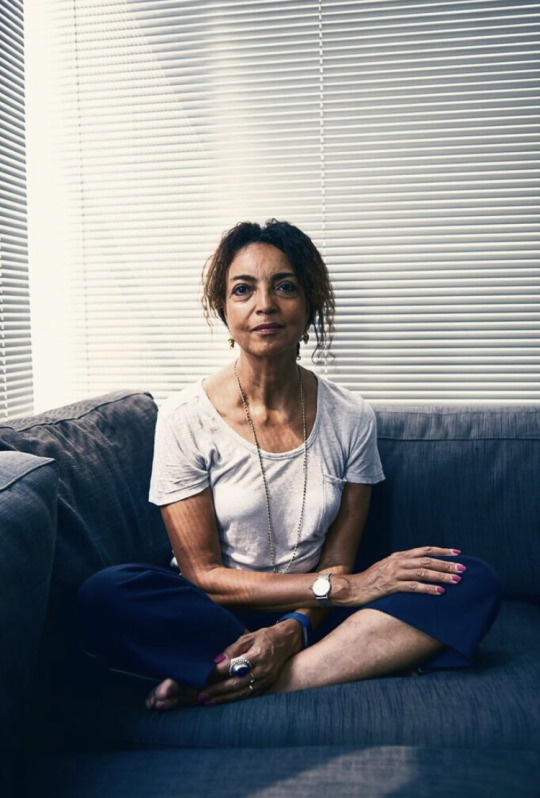
Words Colin Richardson; Photo Joe Magowan
To call Helena Appio a documentary film-maker would not be a lie, but nor would it be anywhere near the whole truth. At various times, she has been a student of anthropology, art, fashion and textiles; designed fabrics and clothes; modelled for Laura Ashley; and been a college lecturer.
During her training as a producer at the BBC, she had a brief sojourn in the land of sticky-back plastic. To her embarrassment, she once turned down the scourge of soggy bottoms. And don’t get me started on her byzantine and extraordinary family history. Well, do, otherwise the next paragraph will have to go out of the window.
In the early 1900s, great-grandfather Appio left his home in southern Italy and moved to Sierra Leone. ‘I expect he left Italy to escape poverty and make a better life for himself, but how and why he ended up in Sierra Leone, I don’t know,’ says Helena.
But once there, he did something even more unexpected. He opened a cinema, the first in Sierra Leone and probably the first in all west Africa. Helena wishes she knew more about it, but ‘the records were destroyed in the civil war of the late 90s and early 2000s. I’d like to go there to see what I can find out, but some of my relatives who have been say there’s nothing to go on.’
Great-grandfather married a local creole woman, part African, part Chinese and they raised a family together. One of his sons later moved to Nigeria, where he also opened a cinema. He, too, married a local woman, but he was killed in a motor accident shortly after the birth of their first child, a son. The boy, Helena’s father-to-be, was taken by his grandparents to live with them in Sierra Leone. He didn’t see his mother again until he was 15.
As a young man, Helena’s father travelled to Britain to train as an engineer. One evening, at a dance, he met the adopted daughter of a wealthy Glasgow family. They married and she went back with him to Nigeria, which, as Helena says, ‘was a very bold thing to do in those days.’
Helena, the eldest, one of her two sisters and her brother were all born in Nigeria (her youngest sister was born in London). But after ten years, her parents’ relationship, it seems, had run its course. Helena’s mother moved to London, bringing her children with her.
‘But my father didn’t come back with us. They never spoke about it, but they must have split up at that point. My mother just said we were all coming back to go to school, which we were. My father came and visited three or four times a year, as he was often in Europe with his business.’
The family settled in Blackheath. They were an unusual sight. In the mid-1960s, there weren’t many white women with black children living on the Heath. ‘People kept stopping my mother because they thought she must be Peggy Cripps,’ says Helena.
Peggy Cripps, the daughter of Labour grandee Sir Stafford Cripps, had caused something of a sensation when, in 1953, she had married the radical Ghanaian lawyer and politician Jo Appiah. The Appiahs had four children – three girls and a boy – who were roughly the same age as Helena and her siblings.
Helena went to Blackheath High, which wasn’t always a comfortable experience as she and her sisters were the only black pupils there. But she did well and, after leaving school and taking a gap year (partly spent travelling in Brazil), she went to Durham University to study anthropology.
‘I found myself in a very old-fashioned college. You had to be in by ten o’clock in the evening and every week there was a formal dinner where you wore a black gown and stood when the head of the college came in. I did not like that.’
So she moved back to London and switched her studies to art. ‘I’d always been very good at art,’ she says, ‘but it wasn’t encouraged at Blackheath High, which was a very academic school.’
She took foundation courses in art before switching to a degree in textiles and fashion at Middlesex University. After graduating, she opened a clothes shop in Covent Garden, selling fabrics and clothes she designed. But when her daughter was born, it became too much and she swapped the world of retail for the more sedate world of lecturing.
‘Then, one day, I saw an ad in the paper – the BBC was looking for nine people to be trainee directors and so I applied. We had two or three interviews and I got one of the places. I learned later that there were over 1,000 applicants. If I’d known that at the time, I wouldn’t have applied; I’d have thought there was no point. Nowadays, I’m often asked to talk to students and I tell them, don’t be put off; it’s worth a try, you’ve got nothing to lose.’
She started in 1990, a year after the birth of her son. Her training included a stint working on Blue Peter, making short filmed inserts. She says she learned a valuable lesson. No, not how to make a nuclear reactor out of some old washing-up liquid bottles, the insides of several loo rolls and acres of Fablon, but how to tell a story in just a few minutes.
It stood her in good stead when she was offered a contract in the BBC’s documentaries department. She worked on many programmes in her time there, but one that stands out for her is DJ Derek’s Sweet Memory Sounds, a portrait of the late Bristolian DJ who was known as ‘the blackest white man in Britain.’
After nearly ten years at the BBC, Helena decided to strike out on her own as an independent producer. She made two memorable documentaries. The Windrush Years for Channel 4 was a series of 12 three-minute portraits of people who came from the Caribbean to live and work in the UK between 1948 and 1971.
A Portrait of Mr Pink told the story of one of Lewisham’s most remarkable citizens, whose vividly painted house at the top of Loampit Hill dazzled all who passed it. More recently, Helena for the Kurdish Memory programme, helping to document the lives of the Kurdish people of Iraq.
Three years ago, Helena left Peckham to live in Hong Kong when her husband got a job working in the acquisitions team at M+, a new museum for visual culture being built in West Kowloon. She is working on a new film of her own, a documentary about the Filipino women who work, often in terrible conditions, as domestic servants in Hong Kong.
But she is back in Peckham whenever she can, visiting friends and seeing her children: Chris, a personal trainer, sports masseur, musician and DJ (performing as Jean Frais); and Nina, a charity worker, who is also the Queen of Samba, performing with the Bermondsey-based London School of Samba.
Helena has but one major regret in life. When she was working in the commissioning department at the BBC, she was approached with a programme idea by an unknown baker. Paul Hollywood, for it was he, invited her and some friends to his bakery school in an effort to convince her to give him his break into TV.
‘It was very nice,’ says Helena. ‘We had a good time. But I couldn’t see what we could do with him, so I turned him down. It took a stroke of genius by the Great British Bake Off people to team him with Mary Berry, Mel and Sue and make him the bad guy. I feel like the person who turned down The Beetles.’
..........................
View DJ Derek’s Sweet Memory Sounds at vimeo.com/53691544 and read about Mr Pink in the August/September issue of our sister paper, The Lewisham Ledger
2 notes
·
View notes
Text
Comforting Words From Six Mums Who Know Best
Comforting Words From Six Mums Who Know Best
Mothers Day
by Sasha Aarons
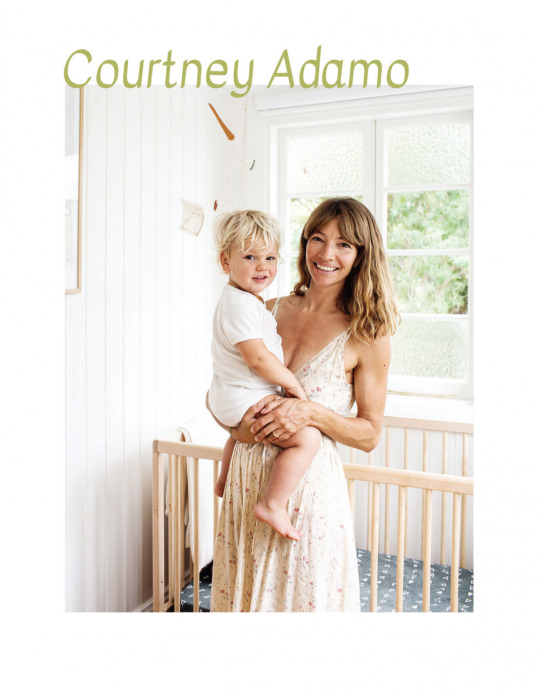
Courtney Adamo and family, captured by Kara Rosenlund.

Courtney Adamo and family, captured by Kara Rosenlund.
Courtney adamo, bangalow, nsw
What have you learned from your Mum that remains with you today?
My Mum has never been a worrier. There has always been a lightness and a sense of optimism to the way she lives, which is something that has rubbed off on me. She’s also always been fastidious about good manners and good grammar. I know it seems silly, but I’m grateful for it now.
What is something you say to comfort your kids in tricky times?
There’s nothing specific I say. I think each kid and each circumstance calls for its own approach. Generally speaking though, I think it’s about being open to any of their questions, concerns or needs, then providing them with honesty, a sense of security, a familiar rhythm and a feeling of being held. We don’t have a TV and we don’t play live radio in the car, so they are spared the doom and gloom of the 24-hour news cycle. When times are tricky, we want to be their source of information, presenting it in a balanced way, with perspective, hope and positivity. I’m also a big believer in the restorative power of mother nature. Whenever we’re feeling down, whatever the reason, a trip to the beach or the woods brings us right back up.
What kind of world do you hope your children will inherit?
I hope our kids will inherit a world that is open and interconnected, with people and ideas moving freely for the benefit and equality of all. I hope for a world where we are conscious of our every imprint on the earth and we prioritise the planet’s need over our personal wants. And it would be awesome if self-driving electric cars were commonplace before they are old enough to drive!
What are you optimistic about right now?
My kids going back to school! Haha. Kidding (sort of). There’s a lot of bad happening in the world right now, and people are suffering in ways I can’t even comprehend, but I hope this collective pause has awakened in us a deeper sense of appreciation for what is most important. This is a historic event and unusual in that it is impacting virtually everyone on the planet in some way. I’m hopeful that moving forward, we will all be more conscious of how our actions, big and small, impact the planet and ourselves. I know we will not be returning to life as usual when it’s all over.
Is everything going to be okay?
I always like to think so! It is my personality (or perhaps a coping mechanism) to try to find the silver lining in every situation, even when things seem really challenging or depressing. I have five children — I have to think the future is bright!
Courtney Adamo is an author, entrepreneur and the co-founder of Babyccino Kids. She is also the mother to five children! Following the release of her first wildly popular e-course, Courtney has just this week released ‘In The Loop : Blossom‘, a 3-week e-course on pregnancy, birth and the first year. Check it out here!
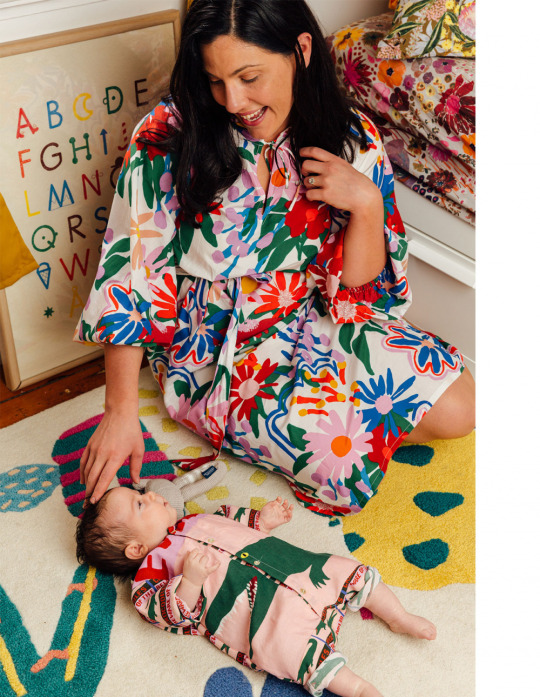
Melbourne textile designer Cassie Byrnes with her gorgeous bub Lottie. Photo by Annika Kafcaloudis.
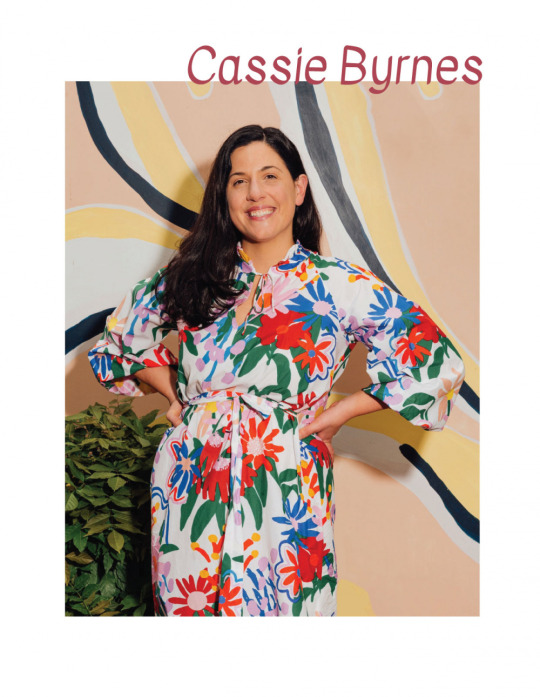
Melbourne textile designer Cassie Byrnes with her gorgeous bub Lottie. Photo by Annika Kafcaloudis.
Cassie Byrnes, Melbourne, VIC
What’s something you learned from your Mum that remains with you today?
Definitely resilience. My Mum has had a pretty rough run in life, which is easy to forget because she is so warm and loving and just gets on with it (as Mums tend to do). In my older age (and since becoming a Mum) I now understand how difficult some of the setbacks must have been, and how she did totally amazing things while raising four kids.
What is something you tell your kids in tricky times?
Well, Lottie is only seven months old, so to her tricky times really just consist of trying to sit up in her sleeping bag or managing to grip on to her pear slices with her tiny slippery fingers…. so I just cheer her on like, ‘You can do it girl, get that pear!’.
What kind of world do you hope your children will inherit?
This is a very big question! For a couple of years I did have a few worries about bringing someone new into a world that I felt was changing for the worse in many ways. But, I was way too maternal to follow through with it, so I guess you win, hormones.
I think we also need to understand that while at this exact moment in time it might be hard to see through the gloom at big picture level, we are still in control of our well-being and destiny and have the chance to use this time to create the future we want.
Closer to home, I really just want her to feel like she can do and be anything she wants, and feel confident enough to find out what that is. If she can take on that spirit then I reckon she’s got a good shot at handling the world in whatever state it’s in when she grows up.
What are you optimistic about right now?
So much. That’s what the baby bubble will do to you! We have looked at this isolation time as something kind of special, one we will always look back on as a time when the three of us were home with each other 24/7, and Lottie has benefitted from so much attention from us! As I learn the ropes of Mum-hood I’m feeling more confident and nurturing than I’ve ever been, and a lot less stressed, because, well, who even has time to stress about anything anymore? If you put all the fears aside and just stop to look at this little human who is genuinely thrilled just to be a part of the world everyday, it’s hard not to feel the same way.
Is everything going to be okay?
One hundred percent. Yes there’s lots of people hurting now, and it’s sad to think there will be more of that to come. But you know, we owe it to them and ourselves to try and find the positivity in all this. I’ve seen neighbours and friends come together in amazing ways lately. My group chats, Mums groups, customers DMs and daggy Zoom trivia nights all help to remind me that it’s the people in your life that really make up your world, and as long as they’re still around of course everything is going to be ok. And if you ever feel like things won’t be, remember to reach out to someone.
Cassie Byrnes is a freelance textile + surface designer. You can shop her latest collection of designs here (and listen to Lucy’s chat with her on TDF Talks Podcast here!).
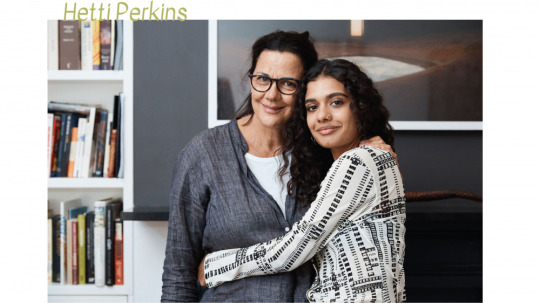
Curator and writer Hetti Kemerre Perkins with her daughter, actress Madeleine Madden. Photo – Alisha Gore.
Hetti Perkins, Sydney, nsw
What does Mother’s Day mean to you?
Mothering or being a mother or Mum means different things to different cultures and communities. For instance, in Arrernte ways you have a number of mothers, and the immediate responsibility to care for a child extends generationally to grandparents and others. Or there’s the ‘Paris is burning’ version of motherhood in the drag community epitomized by RuPaul Charles!
I have been called Mum ‘instinctively’ by some very young children who have come into my home just because they maybe needed a Band Aid and a hug, or were hungry and must have identified me as their best bet for getting those needs sorted! I am also called Mum by some adult kiddos who need the grown up version of a Band Aid or a hug!
As a parent and as a someone who is blessed to be called Mum by a number of people, it’s a day for being grateful for all my ‘children’ who trust me enough to love and be loved; and to be grateful to those people who have helped my kids grow up. So, it’s a day for taking time out to acknowledge all those people – regardless of their biological relationship or gender – who have grown you up.
What’s something you learned from your Mum that remains with you today?
My mum Eileen is awesome, and sometimes infuriating! Me and my kids call her Naughty Nanna and she still constantly surprises us with her tricks and unconventional ways! To this day, marrying my father was probably her best unconventional ‘trick’. My Arrernte and German grandmothers – who couldn’t have come from more ‘opposite’ sides of Australian society yet found common ground and an enduring respect and friendship – continue to inspire me. An early memory I have of my childhood in Alice Springs is Nanna Hetti’s fiercely loyal dog only deigning to also lay his head on Nanna Laura’s lap.
One thing that has stuck with me, was my Mum drilling me in the value of learning history to better understand our world and our place in it – and our responsibility to future generations.
What is something you tell your kids in times of hardship?
We’re all in this together and together we’ll get through it.
What are you optimistic about right now?
Last year we welcomed a little rescue kitten into our family on Mother’s Day. It’s been the gift that keeps on giving, watching Raven grow and flourish despite a hard start in life.
Otherwise it’s art, always! Artists of all genres and ages give me strength. Their creativity has a palpable effect on my mental and physical wellbeing. For instance, Hayley Mary’s brilliant EP ‘The Piss, the Perfume’ is on my high rotation playlist at the moment and I recommend it to any readers needing a dose of good medicine – or gift ideas!
What kind of world do you hope your children will inherit?
A common ground governed by the principle of the common good.
Is everything going to be okay?
It will be if we collectively keep our eye on the ball – and by ball I mean this big, beautiful globe we call home, Earth.
Hetti Kemerre Perkins is a curator and writer. Read our interview with her and her daughter, actress Madeleine Madden, here.

Designer Jenny Kee with her daughter, literary agent Grace Heifetz. Photo – Courtesy of Mimco.
Jenny Kee, Blackheath, NSW
What’s something you learned from your Mum that remains with you today?
Mum was always so incredibly generous and was a true giver, and I never think of her without thinking of her generosity. She was a fanatical cleaner and I have really inherited that trait – I loved this about her. It goes without saying that she had amazing style and was a natural fashionista, and we shared this love of clothes, design and style.
What is something you tell your kids in tricky times?
All things will pass.
What kind of world do you hope your children will inherit?
The Coronavirus has taught us to think more about our world and our environment. I hope that our children will inherit a simpler world, where our focus will be on the abundance of nature, where animals are not extinct, where the sky is blue and we hear the birds sing and our oceans and rivers run clean. A world where the environment is more important than the economy – a world where we live simply so others may simply live.
What are you optimistic about right now?
I am optimistic about my property that was ravaged by fires and the regeneration is glorious.
Is everything going to be okay?
While nature has the upper hand everything will be ok, as she is our Mother – the greatest Mother of all.
Jenny Kee is an artist, fashion designer and environmental activist. See her work and collections here.
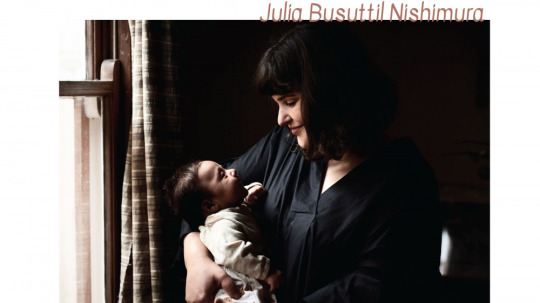
Julia Busuttil Nishimura with new baby boy Yukito! Photo – Eve Wilson for The Design Files.
Julia Busuttil Nishimura, Fitzroy, VIC
What have your learned from your mum that remains with you today?
The importance of showing kindness and having empathy for others.
What is something you say to comfort your kids in tricky times?
We like to keep it light at home but my eldest is 4 so sometimes he’s heard something at kinder or caught a snippet of a conversation. I listen to what his fears are and label them. I think it’s really important to reassure him that things are ok and that he’s safe, that it’s ok to feel sad or scared or whatever he is feeling, but that we’re here for him.
What kind of world do you hope your children will inherit?
I hope my children will inherit a kind world where people look out for each other. A world where the leaders care for ALL – people and nature.
What are you optimistic about right now?
Even though it can be overwhelming when people say the ‘new normal’ I am hopeful that we will return to travel, and family gatherings and hugging friends. I am optimistic that this time has helped many of us to slow down and appreciate the small joys we usually take for granted.
Is everything going to be okay?
It is sad that so much life has been lost and many have lost jobs and businesses and many of us are feeling lonely. It’s been a pretty hectic year. Between this and the bushfires, anxiety levels feel heightened all around, but I do think we will come out the other side stronger and more intertwined as a community.
Julia Busuttil Nishimura is a cook, author and beloved TDF Food columnist!

Yumi Stynes with her partner Martin, and children ‘Man Baby’, Mercy, Dee Dee and Anouk. Photo – Katherine Millard for The Design Files.
Yumi Stynes, Sydney, NSW
What have your learned from your Mum that remains with you today?
My Mum used to say that your physical space is a reflection of your soul. So if your room is in utter disarray, there’s a strong chance your spirituality is, too.
What is something you say to comfort your kids in tricky times?
I used to sing the song “Go to sleep” with our own made-up lyrics – “Go to sleep, go to sleep, you are warm and protected, you are safe, you are loved, bed is soft so – nigh nigh!” Now they’re a bit bigger (4, 5, 15 and 18) so I’m not singing to them as much, but when one of them is having a freak out, the first thing I try to do is listen so they can tell me their fears or what’s going on, then in my own words I repeat what they’ve said back to them so they know I understand. To the little one I might say, “You’re scared – and fair enough! You’re safe. Come here. You’re safe. You’re going to be okay.” To the biggest one I might say, “You’re upset – and fair enough! You’re safe. You’re going to be okay.” It helps to remember that they don’t necessarily want advice, they just want to share.
What kind of world do you hope your children will inherit?
I hope the kids will inherit a world where there’s free universal healthcare and where nature hasn’t been completely destroyed. I really hope there’s an upcoming generation of girls, women and non-binary people out there who are inspired to enter politics because they’ve had a gutful of the monocultural vested-interest wankers we seem to keep putting in charge. I hope basics like bananas and bees don’t become extinct during their lifetimes. I hope they never experience war or famine. But at the moment I just hope they get a chance to live to old age.
What are you optimistic about right now?
I’m optimistic that people have seen that real, systemic and gigantic change is possible. I’m optimistic that when everything else is terrible, art and music still has the power to elevate the soul.
Is everything going to be okay?
One of the things I do for pleasure and relaxation is I cook and nut out new recipes. I do this so much that I tend to have a surplus of food and drop parcels of the latest yummy ridiculous thing to my friends. I have a loop of people I drive around to, dropping off food as gestures of love, solidarity and community. This week I pretty much worked out the most spectacularly perfect recipe for Creamy Chicken Soup. It’s been a work in progress for many years but I actually think I can stop trying to perfect it now because it is, in fact, perfect. So. I don’t know if everything is going to be okay but I do know that there can be comfort in sticking up for and showing kindness to people who need it, and sometimes that is the best that we can do. Until we burn the whole fucking thing down.
Yumi Stynes is an author, presenter and broadcaster. Her award-winning ABC podcast Ladies, We Need To Talk just launched their fourth season. The next episode is about women working at the front line of coronavirus, and is out on May 19th.
0 notes
Text
Track Thursday
Tonight we are marathon training at the athletics track in Norman Park in Bromley. This is my hour, the hour when I am at peace in my mind, the hour that flies by without a single unwanted thought or worry. My first ever visit to an athletics track was in 1976 at Erith, the home of Bexley Borough Athletic Club. Peter White was gliding silently and effortlessly over the cinder surface. I say effortlessly, but I soon came to realise he was actually hurting inside. Ever since that day I have had this love/hate relationship with the orange oval - love being there, hate the nerves before a race. Here is a photo of the early days, probably a Kent Colts and Boys League meeting with Blackheath Harriers, Bexley, Medway and Ashford. I’m no 1 on the inside lane, tucking into the pack.
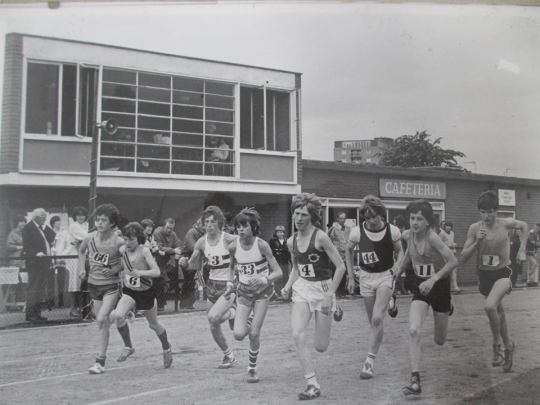
Anyway back to marathon training. Tonight we will have about 40 Petts Wood Runners arriving between 7:30pm and 8pm. There will be much nervous chatter about what the evening session will have in store for them. Many of our group will not have not ventured onto a track since their school days - and, as they walk across the park towards the home straight, their initial thoughts may well be that they don’t want to go near one again. And this is because they will be watching the wonderful Britsh Olympic Finalist Sprinter Dinah Asher-Smith going through her paces under the eagle eye of coach John Blackie. His sprint group is second to none in this country, and boys and girls with very powerful physiques skate down the track.

At 8pm, as the Blackheath and Bromley National Cross Country Champion girls leave the track, we gather together by the finish line. During marathon prep we drop the running form drills and start the session with a 15 min tempo run. This is a run of 15 mins around the track at a pace the athletes find it just about comfortable to talk at. As each lap passes, I will call out either their equivalent 10k time or their marathon time. This is to ensure that every week they get to run at their own marathon pace at least once. A schoolboy/girl error would be to turn up on marathon race day and start off too fast! But no one does that do they?!!!
We have a wide range of abilities, with Parkrun 5k times of 37 mins to 16 mins, so by the end of the 15 mins some will have run 10+ laps while others will be on lap 6. When the 15 min whistle blows to signal the end of the tempo run, the runners all make their way to the finish line to start the session. At this point they should feel very ready to train and not be bending over with their hands on their knees. Tonight’s session is 5x1k (2 1/2 laps of the track) with 90 secs recovery. The slower runners will do 5x800m. As the intervals are 2 1/2 laps long, the runners will stop at either the finish line or just before the last bend and the scene can then become a confusing blur of runners. I will stand and observe the running gait of those who pass me and I will amble around the inside of the track, in the opposite direction of the runners, giving them cues to improve their running efficiency. As the session continues the talking will subside, the faces will become drawn and the coughing and spluttering will become more ugly. The runners’ steps will become heavier - until they near me when, all of a sudden, they lighten again ;-).
As the session comes to a close, the runners will have their hands on their knees or they will be draped over the fences. Within 45 seconds, however, as we begin a collective cool-down stretch and Paul Whelan starts his one-man comedy act, smiles will return and everyone will start discussing the upcoming ‘Sunday long run’. Runners will then make their way back to the car park as the floodlights are switched off.
#blackheathandbromley#johnblackie#dinah asher-smith#petts wood runners#norman park#bromley#athletics#marathon training#london marathon#brighton marathon#track#bexley#ukrunchat#runblr#mikethemod#blackheath and bromley#pwr#intervaltraining
2 notes
·
View notes
Text
Homecoming joy
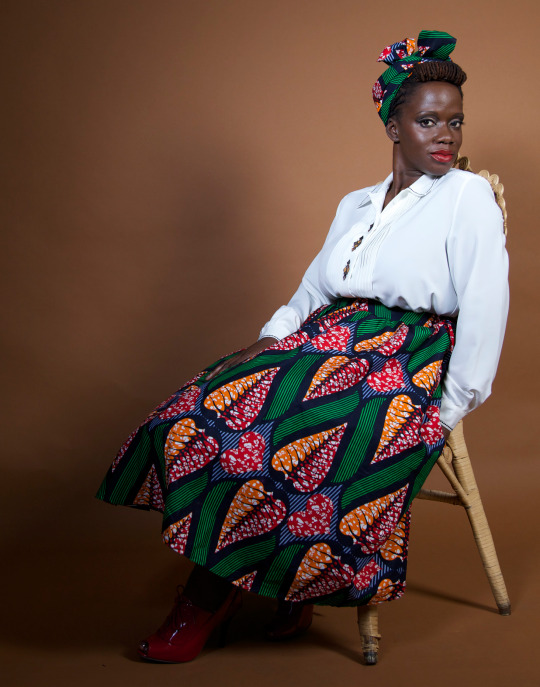
Ayo-Dele Edwards' work is inspired by a rich mix of British and Nigerian musical and cultural influences. The singer-songwriter and actor tells us more
WORDS BY ROSARIO BLUE; PHOTO BY EMMANUEL EDWARDS
It’s not easy to pursue a dream. But for Ayo-Dele Edwards, the sense of accomplishment makes all the blood, sweat and tears worthwhile.
Among the Lewisham resident’s many achievements are the penning of her debut album Forever Becoming, released in 2012, and her one-woman show Becoming, based on songs from the album. It recently enjoyed a short, sold-out run at the Stratford Circus Arts Centre as part of International Women’s Day 2019.
Ayo-Dele is also an actor, and has performed at venues from the Royal Court to the West Yorkshire Playhouse. Her credits include The Secret Lives of Baba Segi’s Wives, a story of sexual politics and family strife in modern-day Nigeria. It ran at the Arcola Theatre in Hackney – receiving a five-star review from the Guardian – toured in Nigeria and has just aired on BBC Radio 3.
Ayo-Dele, which means “my joy has come home” in Yoruba, was born in London, the fourth child of her Nigerian parents. Her family moved back to Nigeria when she was three.
There she adjusted to a new way of life, surrounded by a multitude of musical rhythms and sounds.
However, the family didn’t have a home to go to, so she lived a “nomadic” existence, staying with various relatives rather than her parents and siblings – an experience she found difficult.
Her journey into music began with her church choir. While living in Abeokuta, she found herself drawn to the genre of gospel, with its talking drums and lyrical voices.
“It was the joy,” she says. “It was the music that drew me to church, because the life that I was living was so sad, and I didn’t have family around me. Church was my escape.”
After six years, Ayo-Dele moved back to London aged 10 with her mum and went straight into school, with little time to adjust to the stark change in culture and environment.
At the same time her older brother introduced her to a variety of other music, including rare groove, pop, R&B and soul. Inspired by artists such as King Sunny Adé, Ebenezer Obey, Good Women Choir, Bob Marley and Fela Kuti, her desire to sing intensified.
Later on, seeking a new direction in life, she left the Nigerian white garment church she had attended since early childhood and joined a Pentecostal church. “It was just like, ‘Something needs to change’,” she says. “And even though I didn’t really know God in that way I felt like something needed to happen.
“I didn’t have a relationship with Jesus and I didn’t know that the Holy Spirit was there to help me, to guide me, to protect me, to counsel me, to just be there for me.”
Her life changed again when she gave birth to a daughter. “It was after I had her that I gave my life, I rededicated my life to Jesus. I was like, ‘I want to know who this man is, I want to do it his way.’
“I wanted to know what I was going to offer this girl because I was 21, I had no direction, I didn’t know what I wanted to do with my life.”
With her faith reborn and a healthy daughter to be proud of, Ayo-Dele took another leap of faith and applied to drama school. Her application was successful and she joined the renowned Mountview theatre academy in Wood Green, before it moved to Peckham in 2018.
Her experience of drama school, where she studied for three years, was very different to that of her fellow students.
“Because I had my daughter, I didn’t even get involved in student life. I was the only student who had a child. I was just in and out. I was like, ‘I need to sort my life out, I’m not here to get drunk at night and go off and be wild. I’ve got to be responsible for my child.’”
While at drama school she began session singing for bands like Boyzone and doing TV shows. When her daughter turned five, she met her husband Emmanuel Edwards, a musician and music producer.
In 2002 she joined award-winning gospel group GK Real, who were together for 10 years. “We did an album with the group. I sang a few songs on that and even then, I didn’t particularly see myself as a soloist.
“I liked being in a group, but it wasn’t until after the group decided to go on a break that my husband was like, ‘OK, so what are you going to do with your stuff? You’ve got a story and you’ve got songs in you, so you should consider putting out an album.’”
After careful consideration she decided to give it a shot and set about recording some tracks.
“It was just pulling together all the songs that I’d sung, written, that I’d hum around the house. We went into the studio and I sang them for him and he was like, ‘Yeah’.”
The result, Forever Becoming, is a highly personal album that is an eclectic mixture of Nigerian rhythms, gospel and pop, sung in Yoruba and English.
It explores Ayo-Dele’s dual identity, and addresses her painful memories and harsh realities. Despite all of this there is a sentiment of hope and overcoming adversity threaded through each song.
Titilayo, the first track from the album, is the name of Ayo-Dele’s sister who had become estranged from the family. Ayo-Dele wrote the song on her mother’s behalf and as an expression of how much she herself missed her sister and the unity their family once had.
“It’s kind of that prayer of wanting to see your family reconciled, and wanting to see your family together again,” she explains.
Other tracks include a Yoruba rendition of Gershwin’s Summertime and a musical reimagining of Psalm 91, as well as Daddy’s Girl, a song about longing for a relationship that never was and how that absence can negatively manifest itself in adulthood.
Following a TEDxEuston talk about her experiences of growing up in Nigeria and Britain (it’s available to watch on YouTube) and a music and storytelling-filled album launch directed by Femi Elufowoju Jr, a friend of Ayo-Dele’s suggested she make the album into a one-woman show.
“We began to listen to the album again and he asked me what the stories were. I told him and we did a couple of showcases [at the Arcola Theatre] where we tested it out for an audience to see if it was actually worth pursuing.
“Everyone was like, ‘We need more – more songs. What happened here? What happened there? Tell us more.’ So, I did that.”
If she is able to secure funding, Ayo-Dele plans to tour Becoming in various UK theatres in 2020. She also wants to do more work in the local community, especially now that her youngest daughter is in school.
“I tend to travel a lot for work and then come back home [to Lewisham] to sleep, but now because I have a five year old and she’s in a school in Blackheath, I’m trying to connect more with the community.”
Get ready to see a lot more of Ayo- Dele in 2020.
Forever Becoming is available on iTunes, Apple Music and Spotify. ayo-dele.com
0 notes
Text
Motherhood offers greater rewards than parliament
I wish Kelly O'Dwyer well in her choice to spend more time with her family. I advise her that young children ask a lot of questions and want answers relevant to the subject. -Bea Hodgson, Gerringong Kelly O'Dwyer has legitimate reasons for quitting politics, but no doubt other Coalition members will be jumping ship in the lead up to the election for less than honourable reasons. I suspect the prospect of at least six years in opposition, or worse still, suffering the humiliation of losing their seat, will prompt some not to recontest as election day draws nearer. -Graham Lum, North Rocks The Liberals' Kelly O'Dwyer and Senator David Bushby ("Liberal senator announces resignation, gets plum overseas post 60 minutes later", January 19-20) have announced their resignations. There will be more to come as the thought of those long, lonely years in Opposition begin to keep our Coalition representatives awake at night. And if you are a woman in the Liberals and Nationals? You could be the last one standing. -Wendy Atkins, Cooks Hill Our environment should be an Australian value I was prompted by the values ("Australian values: what the bloody hell are they?", January 19-20) article to read the government's booklet for would-be Australian citizens, Our Common Bond. Not one serious hint of Australia's amazing biodiversity, except for floral emblems and the odd picture of a gum tree. Not even a koala or kangaroo, except for the coat of arms. Many people new to a place find connection, beauty and solace in the natural environment of their new home, just as many Australians serving overseas in world wars found comfort in receiving gum leaves or wattle sprigs pressed between pages of letters from home. Maybe even a mention in the government booklet that Australia is the home of the gum tree would be some acknowledgement of what contributes to make Australia distinctive, and hopefully engender a love of the incredible animals and plants that exist only here. -Jane Gye, Cowan When I came to Australia in 1970, the widely held values of the time supported separating Indigenous children from their parents, keeping married women out of work, racism, keeping "new Australians" in their place and hating Japanese. The White Australia policy was still widely supported. Corruption, in NSW and Victoria, was widely tolerated. Rather than having an obligation to accept the values of my new country, I had a clear obligation to oppose them and to lend my support to those who sought to change them. New South African citizens at that time had an obligation to oppose, not support, the values of apartheid. And, for goodness sake, what values should new German citizens have adopted at the start of the 20th century? The very idea that anyone has an obligation to adopt Australian values just because those values are Australian is absurd. -Martin Bibby, Beecroft In 1956, I "swore allegiance to Her Majesty, Queen Elizabeth the Second, her heirs and successors" at a ceremony conducted in the Blacktown Shire Council. I sent my Certificate of Naturalisation securely encased as a scroll to the NSW Department of Education to qualify for permanency of employment. The document was returned to me folded several times and no longer suitable for mounting and display. As an avowed Republican, I have made inquiries about renewing my allegiance to Australia and its people, rather than the British monarchy. (PS I will abide by any dress code nominated by ScoMo but will not wear a baseball cap.) -Ferdo Mathews, Robina (Qld) Diversity equals quality in politics The excellent editorial ("It is time to bring outsiders inside Canberra's bubble", January 19-20) gets to the heart of Australia's political system problems. Lack of diversity and quality in the parliaments. It goes beyond the gender issue. Remarkably two other articles in that edition concentrate on the same problem: Eryk Bagshaw's "No more diversity, lots more staffers" (January 19-20) and Michael Koziol's "Why era of box seat independents is almost over" (January 19-20). What is missing in these pieces are two crucial questions: why is it so? and what can be done about it? The cause is the single-member-district electoral system. The remedy: introduction of proportional representation open party list, used in 90 other countries. As the major parties have no plans for governance system change, the minors and independents should get the ball rolling. In addition, drop the Westminster practice of selecting governments only from elected MPs. The talent pool available in the wider society is really much larger. -Klaas Woldring, Pearl Beach Is it better to have a "bubble" than a "swamp" in Canberra? -Ciaran Donnelly, Lane Cove West Hemp is the answer If the cotton farm fields are so empty of crop, and the return on harvest as low as reported ("Cotton industry rejects blame for ailing Darling", January 19-20), now would be an excellent time to transition to growing hemp. The move at this time would give them everything to gain and very little to lose. -Anthony Healy, Willougby East No butts about it So Wendy Squires was "talking out of her butt", was she ("True blue furphy: Australia is changing, but not for the best", January 19-20)? Sorry, luv, here in Australia the word is "bum" or "arse" or, if you are in polite company, "bottom" or "behind", although those who have upper-class pretensions might use "derriere". -Ian Falconer, Turramurra Lack of support That the alleged killer of Aiia Maasarwe ("Aspiring rapper held over student's 'horrific' killing", January 19-20) has been arrested is good news. More disturbing is the young man may be suffering from mental health issues and is perhaps homeless. That such a young man is no doubt filled with our society's many unhealthy attitudes towards women, the other question to be asked, is how is it okay that in such a wealthy country as ours do we tolerate the failure to support those suffering from mental health issues, and their all-too-common partners of unemployment and homelessness? We should all be able to walk our streets in safety, but we should also look at the growing disparity in wealth and how that affects the lives of those born into poverty and hopelessness. -Colin Hesse, Marrickville Engineering consent Thank you for your article, Elizabeth Farrelly ("NSW, where any mug can be an engineer", January 19-20). Should we wish for a tsunami to destabilise these atrocious buildings? Seriously, we've never had really good buildings in Sydney, nor in the whole state. No wonder we pay to stay in weird European flats that were built in the 16th century. Despite the wars, they stand. The showers beggars belief, the kitchens are invariably minuscule, but we like the streets they line, the towns they blend into. Ah well. -Carolyn van Langenberg, Blackheath Elizabeth Farrelly points out a lot of the problems that have been around for a long time in the engineering and construction industry. The peak professional engineering membership body, which only accepts engineers who have qualifications acceptable to the body, is the Institution of Engineers Australia. Members have the post-nominal MIEAust, but there is no requirement for engineering/construction companies to employ engineers with this qualification in NSW. For many years the institution tried to get a distinguishing word for "professional engineer", which could only be used by MIEAust members. This appears to have been unsuccessful, consequently anyone can call themselves an engineer with or without qualifications. -Ian Nicholls, Baulkham Hills Long weekends a must In answer to Stuart Dorney's letter about the placement of Australia Day (Letters, January 19-20), before 1988 that is what happened, the last Monday of January was Australia Day, until a politician decided we should celebrate it on the actual day. The "last Monday" was low-key, none of the hype and hyperbole we have now, plus most businesses were closed so the majority of the population could have a weekend to celebrate or commiserate the day. Remember when Australia was "the land of the long weekend", now we are a global city business must be open for the tourists or the locals who forgot the bread. In this election year, both state and federal, let's pressure the politicians to give us back our long weekend. So Michael and Bill, if you win, can we go back to the future, give us back our long weekends? -Robert Pallister, Punchbowl Last century Australia Day used to be moved about to make it a long weekend. Does that mean you would change your birthday to the nearest Friday or Monday? -Ron Field, Bermagui Germany's friendly fire Edward Houghton-Ward declaimed De Gaulle's antipathy towards England and Churchill in particular (Letters, January 19-20). Elsewhere in Europe, the Germans had their own problems. Due to vaulting ambitions and professional egos, Admiral Raeder (Kriegsmarine) clashed with Marshall Goring (Luftwaffe) over the tactical use of air power in support of their naval operations. Communications were so poor that once, early in the war, the Luftwaffe managed to sink two German destroyers. The Royal Navy was delighted. Inter-service rivalries are a killer. -Mike Fogarty, Weston (ACT) More design flaws? Given the problems surrounding the construction of Arthur Phillip High School are sufficiently serious to inspire a decision to build no more high-rise schools in NSW ("Blowouts spell end for school high-rises", January 19-20), it seems reasonable to ask why the design process did not reveal at least some of them? -Norm Neill, Darlinghurst Service interrupted Also, Rob Hughes (Letters, January 19-20), the tennis champions you named don't go through an elaborate, time-consuming routine before serving, unlike Nadal, Murray and many women. With all their years of experience could they not learn the simpler way? And with ball boys and ball girls available there is no need for players to keep spare balls. Keeping one in a pocket is one thing but there is no such special provision in women's pants. Why do they do it? -Roger Henderson, Wollstonecraft CANARY TIME How delighted I was to see Clive Palmer's political advertisement in the Herald (January 19-20) highlighted in yellow. It helped my eye look elsewhere immediately. The colour is so appropriate, just like a canary in a nickel mine. -Deb McPherson, Gerringong I see from Clive Palmer's large in-your-face ad that we need more women in parliament. Palmer says that women "should be accepted not just because of their beauty". If that is the barometer for their acceptance in parliament then it seems we really do have a long way to go. Sack your copywriter, Clive. -Judy Hungerford, North Curl Curl CASSETTE REVIVAL I hope they know they'll need a pencil to wind the spool on when it gets loose ("Music fans hit rewind in cassette fad", January 19-21). -Michael Deeth, Como West ROYAL PAIN It's a stain on Australian bodies and institutions that we need royal commissions, with probably more to come, to investigate wrongdoing in society. Why not have a royal commission into royal commissions, and while we are at it, one into the Tomic and Hewitt feud? -Corrado Tavella, Rosslyn Park (SA) Most Viewed in National Loading https://www.smh.com.au/national/nsw/motherhood-offers-greater-rewards-than-parliament-20190120-p50sin.html?ref=rss&utm_medium=rss&utm_source=rss_feed
0 notes
Text
Greyhound bus ban on unaccompanied passengers under 15 angers rural parents
Greyhound Australia will ban unaccompanied passengers under 15 from using its services from September 3, citing safety and scheduling concerns. The company notified customers via email, citing recent incidents where services were delayed and passengers inconvenienced after parents failed to show at bus stops to pick up their children. The children were taken to police stations. The Isolated Children's Parents' Association has fielded calls from parents who are upset at the changes and face lengthy drives or expensive flights to get their children to boarding schools across the nation. Queensland state president Tammie Irons said the changes were disappointing and would inconvenience rural and remote families who relied on the services. "It'll be really disappointing for those families, to have this service not be able to be utilised," she said. "We've heard nothing until just the last couple of days no warning I'm not sure if they've ever had any consultation or anything like that."

Students entering Somerville House girls' boarding school in Brisbane. Many boarding students use the service to travel long distances to and from their homes. (ABC News: Kristian Silva)

Students entering Somerville House girls' boarding school in Brisbane. Many boarding students use the service to travel long distances to and from their homes. ABC News: Kristian Silva Pressure for parents Muttaburra grazier and mother Lisa Magoffin has two of her five children still at boarding schools and said all had used Greyhound services through Longreach at some stage. "Essentially it's the getting to and from school that's a really important part of our service," she said. Ms Magoffin said families from outlying towns without flight services would lose out under the changes. "The bus service is very convenient, it leaves Brisbane at a good time, arrives into the centres and allows people to pick their children up without travelling long distances," she said. "Are Greyhound going to allow other families to travel together that maybe have a sibling older than 15?" Mrs Irons said that regional flights were unaffordable for many people and the ICPA was concerned families may have to pay thousands of dollars for similar air services to many country centres. "We've all got to admit that it's going to be a lot cheaper for families to utilise bus services," she said. "I think buses are definitely a cost-effective option for parents at the moment and it'll be really disappointing to have that option taken away."

Greyhound services operate in every mainland state.

Greyhound services operate in every mainland state. School concerns Principal of Blackheath and Thornburgh College in Charters Towers, Nigel Fairbarn, said many of his school's 126 boarders aged as young as 11 used bus services to travel to and from school. "The impact for me is the cost and the probability of parents not being able to see their children on such a regular basis," he said. Mr Fairbairn said the school draws students from as far away as the Northern Territory border, including many struggling through drought. "These sorts of extra burdens being placed on families by Greyhound could be the tipping point for families," he said. "They're the children who may not come away to boarding school, families may consider keeping them at home," he said. Greyhound Australia declined to comment. http://www.abc.net.au/news/rural/2018-08-06/changes-to-travel-policy-angers-rural-parents/10076956
0 notes
Text
Sienna Ophelia Lloyd
Submit to “peakyblinders-au” on Tumblr
Tumblr Url & Your Real Name: respectabledirtywork.tumblr.com
Elliot (Eli for short)
Character Full Name: Sienna Ophelia Lloyd
Nicknames/Alias: Sie (pronounced sea)
Gender: Androgynous, reffered to as ‘She’ by practically everyone, prefers ‘they/them’
Gender Role: ‘Welcome to my kitchen, I’m serving looks and dramatic readings of the tory manifesto because it’s that fucking funny’
Sexual Orientation: Panromantic, Asexual. (HA FUCK U TOMMY U CANT FUCK THIS ONE)
Age: 27, looks 23
Birthday: 1901 (basing it off of michael at the end of s4)
Deathday: 1936, attacked on her way home by a woman who often verbally assaulted her. She fought back, but there’s little you can do with a handbag against a meat cleaver.
Birthplace: Cradley Heath
Ethnicity: British
Family Members: Sister of one of the Black Country Boys
Children: Y’all she can barely look after herself, thassa no.
Face shape: Square/Triangle hybrid
Eye colour: Brown
Hair colour: Black
Hairstyle: Feathery bob
Skin tone: Boi she paleeeeee
Body type/Build: Thin, beanpole babe
Height: 5’’6
Breast size: Like… lemons???? A cup?
Facial Hair: None.
Scars/Birthmarks/Prominent Features: Has lil moles everywhere. Cute.
Preferred hand: ambidextrous, but chooses to use left because people don’t think its normal to do so.
Health: N/A
Phobias: Nothing except spiders
Addictions: N/A
Mental Disorders: N/A
Attitude: This girl will scream, will shout, will fucking yodel, as long as she’s heard. The classic rioter, prepared to lose her life on the line for her cause. Her brothers fought with her when they were younger, meaning that they all know how to handle themselves reasonably well. A weapon with words, she is blunt as a butterknife and won’t bullshit anyone.
Expressions: Talks with her hands, they get aggressive when shes angry and she has many times before accidentally hit someone.
Residence: Is living with Jessica Eden as roommates/besties, in birmingham, blackheath.
Political Affiliation: Communist
Friends: - Jessie Eden (Best Friend, Roommate)
- Astrid Marie
- Ada Shelby
- Freddie Thorne (Best Friend before d e a t h)
Enemies: Any ponce who decides that they’re the gender police
Boss: She can get people in the black country boys to do stuff for her, and she has done investigation for them before
Pets: A big staffordshire bull terrier that she leaves with her brother when shes on marches but generally just keeps at home with Jessie.
Finances: Working class
Marital Status: Single and down to date
Sex Life: Asexual – masturbation is p much it.
Lovers: Probably would date a friend. Nothing too serious.
Turn-ons: When people keep their clothes on and keep it non-intimate
Turn-offs: When people are trying to initiate in sexual intercouse of any kind with her
Dom or Sub: Dominos and subway didn’t exist then, right??????????
Fantasies: A government that lets people be people and stops them from getting locked away for doing the homosexual
Occupation: Works with her younger sister, Shiloh, at her dressmakers
Income: Low but liveable
Work Experience: Their mother used to teach them how to make clothes.
Religion: Non believer
Criminal Record: Extremely extensive criminal record, known as a dangerous person to the police.
Morals: Believes that any measures that get the true point across are worthwhile
Main Goal: To contribute to making a world in which people are safe to explore their identities and be themselves
Ambitions: To become leader of the Birmingham Queer Society
Regrets: No big regrets
Secrets: None.
Best memories: Going on her first march/demo/riot, meeting her staffie, meeting Jessie.
Worst memories: Getting put down because of her preffered pronouns for the first time.
Hobbies: Embroiders quite well. Makes hoops that say ‘ fuck the patriarchy ‘ for Jessie to hang up
Skills: Embroidery, spoken word
Likes:
- Riots
- Embroidery
- Literature
- Shouting
- General rebellion
Dislikes:
- The police
- Society
- Sexism
- Transphobia + homophobia
- Knitting (she never got on with it, really)
Superstitions: N/A
Quirks: Amazingly expressive voice
Guilty Pleasures: Cuddling
Strengths:
- Public Speaking
- Ballsy as fuck
- More heart than head
- Will face off the queen for her cause
- Brave
Weaknesses:
- More vulnerable than she lets on
- Will fight fight fight for the pettiest of things
- Could literally be imprisoned at any time
Languages: Just english
Accent: Cradley Accent (Look up ‘Mick Poultney’ on yt for general ideas, except sie is like 20 something and female)
Speech Impediments: Slight lisp on certain words
Voice: Savannah Brown without the accent
Reputation: Sienna has a reputation like a Staffie – most who’ve heard of her think she’s dangerous, a conditioned murder weapon. To a point, she is. Very much so. If you provoke her, you get as much bite as bark. But, like a staffie, if you get to know her, she is kind, and loving.
Backstory: Sienna was raised in Cradley Heath, from a working class family with many brothers. She went to a ragged school, and was fairly decent at classwork when she wasn’t distracted by teachers being unfair. She was often shouting, screaming even, at her teachers for being unfair.
When she became a teenager she fell in love with the city, needing the busy life to keep her constantly satisfied. She moved, took her staffie, and met Freddie in a communist meeting and soon became friends with him, supporting him when he fell in love with Ada, assisting him in wooing her as much as she could behind the scenes. This is how she met Ada, and became one of her friends too, though never being too close.
As an adult she met Jessie, who was looking for a roommate. Which is hard when you’ve got a criminal record like hers. Luckily, Sienna was too, and had the same criminal record. They moved in together, and Sienna converted Jessie into a dog person and a best friend.
1 note
·
View note
Link
A top private school in London is contemplating building unisex toilets - despite the school being exclusively for girls. The £16,000 ($22,340)-a-year Blackheath High School is planning to build gender-neutral toilets after students raised the issue. Headmistress Carol Chandler-Thompson said: "Obviously you can read alarmist headlines about these things, but these are valid questions to be asking." Pupils must be female when they enroll at the school, but Chandler-Thompson said: "We may have young people who are transitioning here, and we would support that." The gender-neutral toilets would be included in major reconstruction work the school is undergoing, with one-third of the buildings being bulldozed and rebuilt. "We are in the middle of a giant building project. If we are introducing a single toilet, why would you put a gender on it? We are not about asking that question," she told the Evening Standard.
0 notes
Photo

The fashion designer Mary Quant had perfected key aspects of 1960s British pop culture long before midnight chimed on the last day of 1959. The Chelsea girl and her try-anything attitude, her short, narrow garments casually bought from a Kings Road boutique – Quant had been working on these since the mid-50s. It took the zeitgeist until at least 1963 to catch on, let alone catch up.
Quant, who has died aged 93, opened her first Kings Road shop, Bazaar, in 1955, the year after Gabrielle “Coco” Chanel ended her postwar hiatus and reopened her Paris salon. They shared a similar ambition: to clothe young, independent women unsuited to fashion dominated by Christian Dior’s 1947 New Look and the work of the grand couturiers. Quant and Chanel designed their clothes to allow new physical and mental freedoms; Quant (unlike Chanel) was also in favour of fun, in reaction to her own teen years under postwar austerity.
Life then had been rationed, begrudged; almost the only place where the young could create their own excitement was at art college, with the Chelsea Arts Ball an annual chance for frivolity. At that ball a teenaged Quant, clad chiefly in balloons, hooked up with a fellow Goldsmiths’ College student, Alexander Plunket Greene, who swanned around long-haired in his mother’s silk pyjama top, trumpet in one hand and film script in the other.
“Life … began for me when I first saw Plunket,” she wrote in her 1966 autobiography Quant By Quant. He was short on ready cash, with an income of “four bob a day,” he recalled, “if one bought cigarettes one couldn’t go the cinema too”, but posh and sexually sophisticated. “Alexander had no use for straightforward sex at all,” Quant said, and he also was consistently unfaithful.
He came from a family said to be Evelyn Waugh’s model for the Flytes in Brideshead Revisited and was at art college crossing social classes. She, born in Blackheath, south-east London, had been persuaded by her parents, Jack and Mildred, both schoolteachers, to study art rather than fashion on leaving Blackheath high school.
After Goldsmiths’, she worked as a trainee assistant at the Mayfair milliner Erik. Quant picked up pins with a magnet and counted out the ration of one chocolate biscuit a day for the assistants, who were so poorly paid that, as Cecil Beaton exaggerated, “there were weeks when only an aspirin touched Mary’s lips and, but for the Jamaicans in nearby Claridge’s kitchens handing over their refuse bins, she would have starved”.
The creation of a hat was Quant’s practical introduction to fashion, and the sculptural moulding that quickly shapes millinery influenced her approach to clothes. She had reservations about “spending three days making one hat which would be worn for one afternoon by a grumpy, spoiled middle-class woman”, learned dress-pattern-cutting at night school, to put outfits together for herself, and briefly worked for the Butterick pattern company.
Plunket’s poverty ended on his 21st birthday when he inherited £5,000; advised by the entrepreneur Archie McNair, who became Quant’s financial brain thereafter, he took a mortgage on a property on the corner of Markham Street and Kings Road, Chelsea.
He wanted to open a nightclub in its basement, but could not get an alcohol licence, so that level became Alexander’s Restaurant, a bistro influenced by his friend Terence Conran and the recipes of Elizabeth David. Plunket told McNair that his girl was good at clothes, and Quant set up Bazaar on the ground floor.
Bazaar acted in lieu of the desired club, with wine or scotch under the counter and girls shedding their garments on the floor, attracting anti-establishment former art-school characters who had gone into photography and journalism. It was hardly a shop – the preferred word was boutique anyway – since the couple never understood business. Incoming bills were piled up and those at the top were paid – Conran said you could not open the front door for writs. They were part of the new bohemian Chelsea set and their stories became SW3 legend.
Quant bought fabric from Harrods at retail prices on a Plunket family account, and had to sell each batch of clothes before she could buy more; when she ran out of stock, she simply shut up shop and started sewing. When she asked manufacturers to make for her, few would, since her ever-skimpier, shorter shapes did not promise big enough profit margins.
Besides, Bazaar might be closed for weeks with a “gone fishing” sign placed in the window while Quant and Plunket went on holiday. They wanted a wider life, flying off in chartered planes to gamble in Le Touquet: because of the era’s currency restrictions, Quant smuggled out in her knickers the cash to buy a French home. They ran an illegal chemin-de-fer game in the Quant delivery van parked in a different Chelsea street each Thursday.
By the late 50s Quant had synthesised her Chelsea girl look from elements of left bank kooky beatnik and practical details of American sportswear, plus her preference for vulgarity over good taste. Then she began supplementing it with memories of her ideal – a girl of about eight glimpsed during a childhood dancing class, who had a Dutch doll haircut and wore a dark skinny knit, very short pleated skirt, white socks and black patent shoes that focused on the boot button of their ankle strap. Quant made similar clothes the basis of the dolly-bird look of the 60s.
In retrospect, this sexualised projection of a very young girl feels disturbing. Dolly-birds skipped, and knocked their knees, and pointed their toes in what Quant called “the wet-knicker pose”. Stocking-tops and suspenders were slowly replaced by patterned or coloured tights, and Quant developed stretchy undergarments no heavier than those tights.
Quant’s own hairdresser, Vidal Sassoon, cut geometric variants of the bob. The whole ensemble pointed in one direction. “The crotch is the most natural erogenous zone,” said Quant, directing her models in their Banlon, Bri-nylon and PVC mini shifts to prance for maximum pelvic thrust, and claiming that her husband once cut her own green-dyed pubic hair into a heart shape. Angry bowler-hatted men beat with fists and umbrellas on Bazaar’s window, Quant recalled: “It got to them in some way, what I was doing.”
Being a dolly-bird was just about affordable on teen pay. Quant went wholesale in 1961, and two years later launched mass-market fashions under the name Ginger Group – ginger, prune and grape being the previously non-fashion colours that she favoured. She also signed on as an adviser with the US retailer JC Penney: from then on she could afford to hop on big jet planes to distant destinations at whim, as she had once done buses on Kings Road; her personal transport was a black Mini car with a black leather interior.
But she was never comfortable with large-scale clothes production and soon realised that the real money lay in franchising household goods such as bedding, and, even more, in designing faces.
Mary Quant cosmetics arrived in 1966 and were more original than her clothes. Cosmetic containers had traditionally been designed as ornaments for dressing tables, with lipsticks and compacts based on 18th-century boudoir trinkets. Quant observed that professional models painted their faces like canvases with brushes and theatrical grease sticks, and as an art student she had worn the contents of her watercolour paint tubes. She commercialised these ideas, and the daisy logo that was always the doodled focal point of her dress sketches then appeared on makeup packaging – yellow tins of crayons, and simplified bottles, sold not from store counters but from “pods” that might have been moon landing capsules.
Skin cream was sold with matching vitamin pills. Bazaar closed in 1969, by which time 7 million women worldwide had Quant’s label in their wardrobe.
Quant cosmetics also dwindled away in the 70s but were revived under licence in Japan in 1984, and re-exported to the west in the 90s. Japan was Quant’s most logical market, for young women there have cultural sanction to present themselves as prepubescent – pretending to be very young is seen as liberating, which appealed to Quant, who said: “I grew up not wanting to grow up, growing up seemed so terrible, children were free and sane.”
She eventually resigned as director of the company, and lost control in 2000 of her name and her daisy, but stayed as consultant. She also began designing clothes for the New York store Henri Bendel, which realised her vintage work was being collected. Her approach was understood as being as dramatically simple as Chanel’s – “Only I had better legs than Chanel,” said Quant.
Her first retrospective exhibition, Mary Quant’s London, in 1973 at the Museum of London, had a 50s gloom room so visitors could appreciate the difference she had made, for which she was appointed OBE in 1966 – a very big deal at the time. She was made a dame in 2015, and a companion of honour this year.
When the V&A put on a lifetime retrospective show in 2019, it sourced exhibits radically by asking the public to loan Quant clothes they had kept. Many of those selected were displayed with old photographs of their owners wearing them, captioned with the outfit’s personal “story”. The exhibition drew huge crowds, with visitors talking to each other – a rare occurrence – about what it had been like to wear Quant fashion when it was new.
Although the Chelsea set regarded home as the place you went when there was nothing better to do, Quant loved her house in Grasse, Provence, and a retreat in Guildford, Surrey. There she gardened by torchlight when day faded, and installed a 60s Claes Oldenburg plastic statue commemorating dolly-bird knees.
The turbulent marriage of the Plunket Greenes, which had begun in 1957, ended with his death in 1990. Her later partner, Antony Rouse, died in 2014. Quant is survived by Orlando, the son from her marriage, and three grandchildren.
🔔 Mary Quant, fashion and cosmetics designer, born 11 February 1930; died 13 April 2023
Daily inspiration. Discover more photos at http://justforbooks.tumblr.com
35 notes
·
View notes
Text
February Reflections & the End of Summer
Hello there! Hope you are all well. Today is the first day of Autumn, although it is still a rather warm sunny summery day. I don’t know about anyone else & I’m certainly no meteorological expert, but I really do think our Summer here doesn’t end until at least April. I feel like over the last few years the seasons have been slowly shifting & Summer gets longer while Autumn & Winter get shorter. I used to always be a summer girl & the heat never really bothered me. Boy has that changed! This year I have found the heat utterly exhausting & I can’t wait for the cooler weather of Autumn & Winter, to get rugged up & wear my boots again! I’m definitely starting to prefer Autumn & Spring now. The weather is so much milder & there are more opportunities to get in to the garden & get some landscaping done.
As one month ends & another begins I thought I’d write a bit about my reflections on the past month & what I have or have not achieved in my aim of developing a more mindful & balanced life.

I started a bullet journal which is something I have not tried before. I’m not really following any kind of specific formula, or template, just creating pages for things that I would like to keep track of & explore over the year. So far I have really enjoyed it & I try to create a new page every couple of days. I think it will be a really nice way to see what I’ve achieved & remember all the things that we did as a family at the end of the year. So far I have pages for Books I’ve read, Makes for Me, Makes for Tilly, Makes for Gifts & Makes for the home. I’ve also drawn up a Walking & Hiking Tracker to count how many kilometres I do on my morning walks or hikes I go on. I also have a sewing time & crochet time tracker to see how many hours over the course of a year these two activities take up. I have listed my two Make Nines as well as a page for this year’s word, Discovery, & my Mindful Living goals. I have pages for Adventures, Holidays, Garden Tasks & Home Renovations completed. A page to list the things I’m grateful for, New Crafts I’ve Tried & Tilly’s milestones.

As well as my bullet journal I’ve been working in my List Journal which was put out by the magazine Breathe. Some of the questions or lists have been really easy to fill out, but others are much harder & it’s really forced me to sit down & think about my thoughts & answers.
I have started going on a morning walk on Friday’s. I don’t work on this day, so I get up early & go for a walk before Tilly gets up & before my husband leaves for work. As I really want to get in to bushwalking or hiking, I thought this would be a good way to build my fitness levels back up. It’s also a nice way to clear my mind a bit after a week of being in the office & prepare myself for what the weekend will bring.

Native Gum Blossom found on my morning walk.
It’s been really hot here this past month so I haven’t really gotten out in to the garden to do much. We have a lot of hard landscaping & clearing that needs to be done & that’s a bit hard to do in 35-40 degree heat! I did get a bit done last week before the rain deluge, & Tim & I cut some trees down & took two loads of waste to the tip. I’d really like to plant some spring bulbs this year, so I need to get the front garden beds weeded & mulched soon so I can do that.
I’ve really enjoyed my making time this month. It’s been nice having the pressure to make items for my shop or markets taken off my shoulders. I’ve enjoyed working on things that I want to work on. I’ve nearly finished my Hexagon Flower Mini Quilt. I have loved working on this & it feels good to have nearly finished something I started ages ago.

I pulled out another project I started years ago in the past week to get done, a 1” hexagon quilt pattern that I drafted up around 6 years ago. It’s called the Flowers Floor Mat & I’m hoping to get it finished for Tilly for Christmas.

I’ve been crocheting a couple of things for my best friend who is having her first baby. She is due in April. I’ve been crocheting a ripple pram blanket & I’ve also made a bunny buddy for her. I have plans to make a fruit rattle as well. I also dyed up some yarn which my mum has then crocheted into a gorgeous cardigan. This past week I’ve also been making decorations for her baby shower which is this Sunday.
I have been reading much more, although I still do find that the only thing I really want to do in my downtime is sew. I find it hard to stop when I’m engrossed in a project. This month I finished A Garden in the Hills by Christine McCabe. To be honest I actually started this book last year but put it aside as I got really busy with my shop & markets. I didn’t have much to go so I thought I’d get it done so I could start something new. The book follows a year in the life of a Garden in the Adelaide Hills. I really enjoyed it & it was quite motivating. The only thing I found mildly disappointing is that even though it’s a novel, there were no photos of the garden that the book was about. And while the author painted a really good picture, it would have been nice to see some actual photos.
We went on a couple of outings in February. There was the daytrip I took with Tilly & my parents last weekend, which I wrote about in my previous post to Mittagong & Bowral. Tim, Tilly & I also went on a drive up the mountains to Blackheath to Evans Lookout & also up Blackheath Mountain. Every time we go exploring in our ‘backyard’ & I stand on the rocky outcrops looking over the vast valleys I feel such a sense of awe & littleness. It always leaves me feeling rejuvenated & with a great sense of hope & optimism for our future. It’s so nice getting back to nature. Even though the bush is so vast somehow it also feels so comforting. We’re going camping at Easter with friends out west again this year & I can’t wait! It’s going to be so much fun watching Tilly explore, & you just can’t beat sitting around the campfire with friends having a good old yarn!

The view from Evans Lookout

On top of Blackheath Mountain looking down in to the Megalong Valley
Tilly & I did some painting this month. It’s so fun watching here develop her creative side. She really enjoys drawing with crayons & painting. I bought some paper plates for her to paint. Because they are a bit stiffer than sheets of paper I thought they’d be a bit more robust & stand up to the paintbrush stabbing & all the wet paint. Paper gets quite soggy & tears really easy. I bought a couple of small canvases for her to paint on next. Tilly now goes to day care, or ‘School’ as we prefer to call it on Thursday’s. Her first day was fantastic & there were no tears when I dropped her. Subsequent weeks were not so good & there was a lot of crying & holding on to me for dear life when it was time for me to go. She always has a good day there & enjoys the activities. The drop off has gotten better & last week there was only a brief little cry when I went to leave. I know she will get better, & it’s so good for development. I’m amazed at how much she is learning & how quickly she is learning. She can now count to 10 & can also read & say all the letters of the alphabet, except for G, J & W. The other day whilst doing the grocery shopping she even recited the entire alphabet from A to Z without any help from me!!

This moth I also played around a bit more with my styling & photography, this time with a Valentine’s Theme. I’m still finding my feet with styling & photography & this is something I want to work on a lot more this year.

I hope this past month has been a good one for you. I hope the start of your year has been great & that you feel you’re on track for a year full of all the loveliest things in life. I know I’ve certainly started this year very positively & I have enjoyed discovering new things, new ways to look at my life & new things about myself.
Have a lovely weekend,
Miss Leela xo
#reflections#craftblog#craftblogger#lifestylblog#lifestyleblogger#creativeblog#creativeblogger#creativelife
0 notes
Text
Homecoming joy
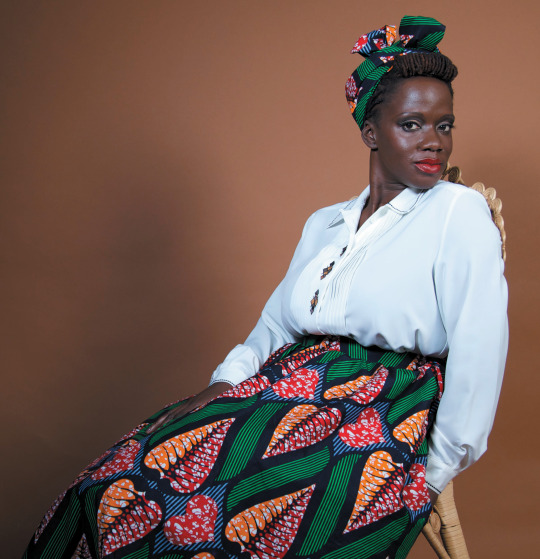
Ayo-Dele Edwards' work is inspired by a rich mix of British and Nigerian musical and cultural influences. The singer-songwriter and actor tells us more
WORDS BY ROSARIO BLUE; PHOTO BY EMMANUEL EDWARDS
It’s not easy to pursue a dream. But for Ayo-Dele Edwards, the sense of accomplishment makes all the blood, sweat and tears worthwhile.
Among the Lewisham resident’s many achievements are the penning of her debut album Forever Becoming, released in 2012, and her one-woman show Becoming, based on songs from the album. It recently enjoyed a short, sold-out run at the Stratford Circus Arts Centre as part of International Women’s Day 2019.
Ayo-Dele is also an actor, and has performed at venues from the Royal Court to the West Yorkshire Playhouse. Her credits include The Secret Lives of Baba Segi’s Wives, a story of sexual politics and family strife in modern-day Nigeria. It ran at the Arcola Theatre in Hackney – receiving a five-star review from the Guardian – toured in Nigeria and has just aired on BBC Radio 3.
Ayo-Dele, which means “my joy has come home” in Yoruba, was born in London, the fourth child of her Nigerian parents. Her family moved back to Nigeria when she was three.
There she adjusted to a new way of life, surrounded by a multitude of musical rhythms and sounds.
However, the family didn’t have a home to go to, so she lived a “nomadic” existence, staying with various relatives rather than her parents and siblings – an experience she found difficult.
Her journey into music began with her church choir. While living in Abeokuta, she found herself drawn to the genre of gospel, with its talking drums and lyrical voices.
“It was the joy,” she says. “It was the music that drew me to church, because the life that I was living was so sad, and I didn’t have family around me. Church was my escape.”
After six years, Ayo-Dele moved back to London aged 10 with her mum and went straight into school, with little time to adjust to the stark change in culture and environment.
At the same time her older brother introduced her to a variety of other music, including rare groove, pop, R&B and soul. Inspired by artists such as King Sunny Adé, Ebenezer Obey, Good Women Choir, Bob Marley and Fela Kuti, her desire to sing intensified.
Later on, seeking a new direction in life, she left the Nigerian white garment church she had attended since early childhood and joined a Pentecostal church. “It was just like, ‘Something needs to change’,” she says. “And even though I didn’t really know God in that way I felt like something needed to happen.
“I didn’t have a relationship with Jesus and I didn’t know that the Holy Spirit was there to help me, to guide me, to protect me, to counsel me, to just be there for me.”
Her life changed again when she gave birth to a daughter. “It was after I had her that I gave my life, I rededicated my life to Jesus. I was like, ‘I want to know who this man is, I want to do it his way.’
“I wanted to know what I was going to offer this girl because I was 21, I had no direction, I didn’t know what I wanted to do with my life.”
With her faith reborn and a healthy daughter to be proud of, Ayo-Dele took another leap of faith and applied to drama school. Her application was successful and she joined the renowned Mountview theatre academy in Wood Green, before it moved to Peckham in 2018.
Her experience of drama school, where she studied for three years, was very different to that of her fellow students.
“Because I had my daughter, I didn’t even get involved in student life. I was the only student who had a child. I was just in and out. I was like, ‘I need to sort my life out, I’m not here to get drunk at night and go off and be wild. I’ve got to be responsible for my child.’”
While at drama school she began session singing for bands like Boyzone and doing TV shows. When her daughter turned five, she met her husband Emmanuel Edwards, a musician and music producer.
In 2002 she joined award-winning gospel group GK Real, who were together for 10 years. “We did an album with the group. I sang a few songs on that and even then, I didn’t particularly see myself as a soloist.
“I liked being in a group, but it wasn’t until after the group decided to go on a break that my husband was like, ‘OK, so what are you going to do with your stuff? You’ve got a story and you’ve got songs in you, so you should consider putting out an album.’”
After careful consideration she decided to give it a shot and set about recording some tracks.
“It was just pulling together all the songs that I’d sung, written, that I’d hum around the house. We went into the studio and I sang them for him and he was like, ‘Yeah’.”
The result, Forever Becoming, is a highly personal album that is an eclectic mixture of Nigerian rhythms, gospel and pop, sung in Yoruba and English.
It explores Ayo-Dele’s dual identity, and addresses her painful memories and harsh realities. Despite all of this there is a sentiment of hope and overcoming adversity threaded through each song.
Titilayo, the first track from the album, is the name of Ayo-Dele’s sister who had become estranged from the family. Ayo-Dele wrote the song on her mother’s behalf and as an expression of how much she herself missed her sister and the unity their family once had.
“It’s kind of that prayer of wanting to see your family reconciled, and wanting to see your family together again,” she explains.
Other tracks include a Yoruba rendition of Gershwin’s Summertime and a musical reimagining of Psalm 91, as well as Daddy’s Girl, a song about longing for a relationship that never was and how that absence can negatively manifest itself in adulthood.
Following a TEDxEuston talk about her experiences of growing up in Nigeria and Britain (it’s available to watch on YouTube) and a music and storytelling-filled album launch directed by Femi Elufowoju Jr, a friend of Ayo-Dele’s suggested she make the album into a one-woman show.
“We began to listen to the album again and he asked me what the stories were. I told him and we did a couple of showcases [at the Arcola Theatre] where we tested it out for an audience to see if it was actually worth pursuing.
“Everyone was like, ‘We need more – more songs. What happened here? What happened there? Tell us more.’ So, I did that.”
If she is able to secure funding, Ayo-Dele plans to tour Becoming in various UK theatres in 2020. She also wants to do more work in the local community, especially now that her youngest daughter is in school.
“I tend to travel a lot for work and then come back home [to Lewisham] to sleep, but now because I have a five year old and she’s in a school in Blackheath, I’m trying to connect more with the community.”
Get ready to see a lot more of Ayo- Dele in 2020.
Forever Becoming is available on iTunes, Apple Music and Spotify. ayo-dele.com
0 notes
Text
2018 New Releases
I love finding new releases. There’s something just so satisfying (and smug) about being one of the first to read an amazing book before everyone else. I often like to trawl the web and find out about the new books and debuts that pique my interest and note them down, because who doesn’t love a good list right???
So here are the first 10 books to be released in 2018 that I have my eye on.
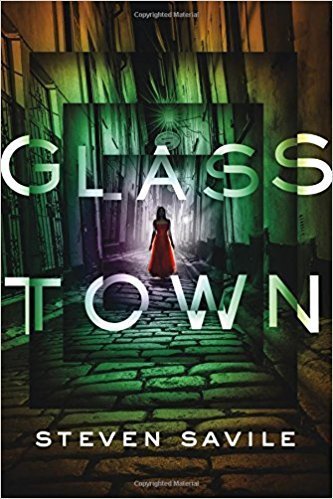
Glass Town by Steven Savile - UK release 13 January 2018 (Fantasy) - St Martin’s Press
“ In 1926, two brothers both loved Eleanor Raines, a promising young actress from the East End of London. But, along with Seth Lockwood, she disappeared, never to be seen again. Isaiah, Seth’s younger brother, refused to accept that she was just gone. It has been seventy years since and the brothers are long dead. But now their dark, twisted secret, threatens to tear the city apart. Seth made a bargain with Damiola, an illusionist, to make a life size version of his most famous trick, and hide away part of London to act as a prison out of sync with our time, where one year passes as one hundred. That illusion is Glass Town. And now its walls are failing. Reminiscent of Clive Barker’s Weaveworld and Neil Gaiman’s American Gods, Savile brings out the magic in the everyday. Glass Town is full of gritty urban landscapes, realistic characters, conflict, secrets, betrayals, magic, and mystery.”
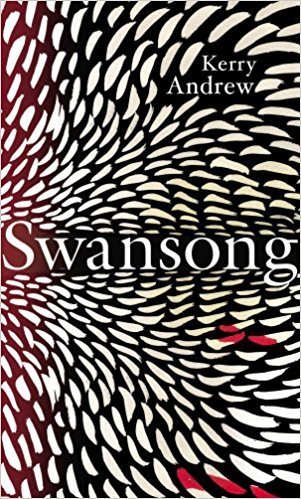
Swan Song by Kerry Andrew - UK release 25 January 2018 (Literary Fiction) - Jonathan Cape
“ In this stunningly assured, immersive and vividly atmospheric first novel, a young woman comes face-to-face with the volatile, haunted wilderness of the Scottish Highlands. Polly Vaughan is trying to escape the ravaging guilt of a disturbing incident in London by heading north to the Scottish Highlands. As soon as she arrives, this spirited, funny, alert young woman goes looking for drink, drugs and sex – finding them all quickly, and unsatisfactorily, with the barman in the only pub. She also finds a fresh kind of fear, alone in this eerie, myth-drenched landscape. Increasingly prone to visions or visitations – floating white shapes in the waters of the loch or in the woods – she is terrified and fascinated by a man she came across in the forest on her first evening, apparently tearing apart a bird. Who is this strange loner? And what is his sinister secret? Kerry Andrew is a fresh new voice in British fiction; one that comes from a deep understanding of the folk songs, mythologies and oral traditions of these islands. Her powerful metaphoric language gives Swansong a charged, hallucinatory quality that is unique, uncanny and deeply disquieting,”
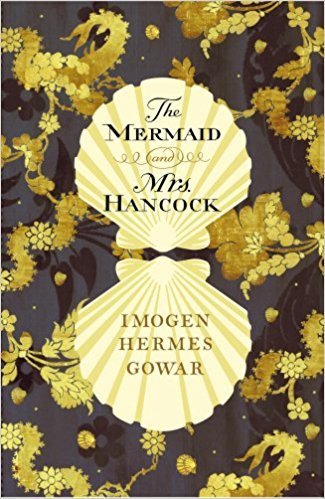
The Mermaid and Mrs Hancock by Imogen Hermes Gowar - UK release 25 January 2018 (Historical Fiction/Magical Realism) - Harvill Secker
“One September evening in 1785, the merchant Jonah Hancock hears urgent knocking on his front door. One of his captains is waiting eagerly on the step. He has sold Jonah’s ship for what appears to be a mermaid. As gossip spreads through the docks, coffee shops, parlours and brothels, everyone wants to see Mr Hancock’s marvel. Its arrival spins him out of his ordinary existence and through the doors of high society. At an opulent party, he makes the acquaintance of Angelica Neal, the most desirable woman he has ever laid eyes on… and a courtesan of great accomplishment. This meeting will steer both their lives onto a dangerous new course, on which they will learn that priceless things come at the greatest cost. Where will their ambitions lead? And will they be able to escape the destructive power mermaids are said to possess? In this spell-binding story of curiosity and obsession, Imogen Hermes Gowar has created an unforgettable jewel of a novel, filled to the brim with intelligence, heart and wit.”

The Wicked Cometh by Laura Carlin - UK release 1 February 2018 (Historical Fiction) - Hodder & Stoughton
“ The year is 1831 Down the murky alleyways of London, acts of unspeakable wickedness are taking place and no one is willing to speak out on behalf of the city’s vulnerable poor as they disappear from the streets. Out of these shadows comes Hester White, a bright young woman who is desperate to escape the slums by any means possible. When Hester is thrust into the world of the aristocratic Brock family, she leaps at the chance to improve her station in life under the tutelage of the fiercely intelligent and mysterious Rebekah Brock. But whispers from her past slowly begin to poison her new life and both she and Rebekah are lured into the most sinister of investigations. Hester and Rebekah find themselves crossing every boundary they’ve ever known in pursuit of truth, redemption and passion. But their trust in each other will be tested as a web of deceit begins to unspool, dragging them into the blackest heart of a city where something more depraved than either of them could ever imagine is lurking … “
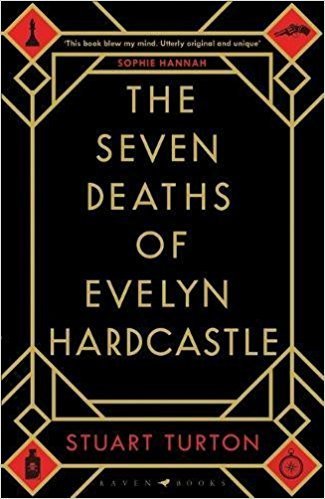
The Seven Deaths of Evelyn Hardcastle by Stuart Turton - UK release 8 February 2018 (Mystery) - Raven Books
“A brilliantly original high concept murder mystery from a fantastic new talent: Gosford Park meets Inception, by way of Agatha Christie ‘Somebody’s going to be murdered at the ball tonight. It won’t appear to be a murder and so the murderer won’t be caught. Rectify that injustice and I’ll show you the way out.’ It is meant to be a celebration but it ends in tragedy. As fireworks explode overhead, Evelyn Hardcastle, the young and beautiful daughter of the house, is killed. But Evelyn will not die just once. Until Aiden – one of the guests summoned to Blackheath for the party – can solve her murder, the day will repeat itself, over and over again. Every time ending with the fateful pistol shot. The only way to break this cycle is to identify the killer. But each time the day begins again, Aiden wakes in the body of a different guest. And someone is determined to prevent him ever escaping Blackheath…”
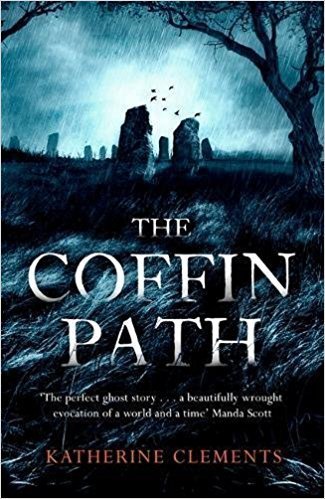
The Coffin Path by Katherine Clements - UK release 8 February 2018 (Gothic/Horror) - Headline Review
“ The Coffin Path by Katherine Clements is an eerie and compelling seventeenth-century ghost story set on the dark wilds of the Yorkshire moors. For fans of Michelle Paver and Sarah Waters, this gothic tale will weave its way into your imagination and chill you to the bone. ‘The vibrant new voice of historical fiction’ - Suzannah Dunn. Mercy Booth has lived at Scarcross, the old hall just off the coffin path, for all her life. The moors and the house are in her blood - and her soul. Ellis Ferreby is a mysterious, unpredictable outsider who arrives there unexpectedly and finds himself increasingly drawn into her world. But the house holds a tainted history. And the moor top hides something far darker…”

The Sealwoman’s Gift by Sally Magnusson - UK release 8 February 2018 (Historical Fiction) - Two Roads
“ In 1627 Barbary pirates raided the coast of Iceland and abducted some 400 of its people, including 250 from a tiny island off the mainland. Among the captives sold into slavery in Algiers were the island pastor, his wife and their three children. Although the raid itself is well documented, little is known about what happened to the women and children afterwards. It was a time when women everywhere were largely silent. In this brilliant reimagining, Sally Magnusson gives a voice to Ásta, the pastor’s wife. Enslaved in an alien Arab culture Ásta meets the loss of both her freedom and her children with the one thing she has brought from home: the stories in her head. Steeped in the sagas and folk tales of her northern homeland, she finds herself experiencing not just the separations and agonies of captivity, but the reassessments that come in any age when intelligent eyes are opened to other lives, other cultures and other kinds of loving. The Sealwoman’s Gift is about the eternal power of storytelling to help us survive. The novel is full of stories - Icelandic ones told to fend off a slave-owner’s advances, Arabian ones to help an old man die. And there are others, too: the stories we tell ourselves to protect our minds from what cannot otherwise be borne, the stories we need to make us happy.”

Folk by Zoe Gilbert - UK release 8 February 2018 (Fantasy/Literary Fiction) - Bloomsbury
“ Every year they gather, while the girls shoot their arrows and the boys hunt them out. The air is riddled with spiteful shadows - the wounds and fears and furies of a village year. On a remote and unforgiving island lies a village unlike any other: Neverness. A girl is snatched by a water bull and dragged to its lair, a babe is born with a wing for an arm and children ask their fortunes of an oracle ox. While the villagers live out their own tales, enchantment always lurks, blighting and blessing in equal measure. Folk is a dark and sinuous debut circling the lives of one generation. In this world far from our time and place, the stories of the islanders interweave and overlap, their own folklore twisting fates and changing lives. A captivating, magical and haunting debut novel of breathtaking imagination, from the winner of the 2014 Costa Short Story Award.”

The Toymakers by Robert Dinsdale - UK release 8 February 2018 (Fantasy/Historical Fiction) - Del Rey
“Do you remember when you believed in magic? The Emporium opens with the first frost of winter. It is the same every year. Across the city, when children wake to see ferns of white stretched across their windows, or walk to school to hear ice crackling underfoot, the whispers begin: the Emporium is open! It is 1917, and London has spent years in the shadow of the First World War. In the heart of Mayfair, though, there is a place of hope. A place where children’s dreams can come true, where the impossible becomes possible – that place is Papa Jack’s Toy Emporium. For years Papa Jack has created and sold his famous magical toys: hobby horses, patchwork dogs and bears that seem alive, toy boxes bigger on the inside than out, ‘instant trees’ that sprout from boxes, tin soldiers that can fight battles on their own. Now his sons, Kaspar and Emil, are just old enough to join the family trade. Into this family comes a young Cathy Wray – homeless and vulnerable. The Emporium takes her in, makes her one of its own. But Cathy is about to discover that while all toy shops are places of wonder, only one is truly magical… “
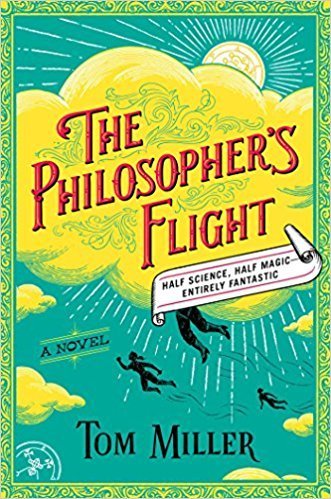
The Philosopher’s Flight by Tom Miller - UK release 13 February 2018 (Fantasy) - Simon & Schuster
“ A thrilling debut from ER doctor turned novelist Tom Miller, The Philosopher’s Flight is an epic historical fantasy set in a World-War-I-era America where magic and science have blended into a single extraordinary art. “Like his characters, Tom Miller casts a spell.” (Matthew Pearl, author of The Dante Club and The Last Bookaneer) Eighteen-year-old Robert Weekes is a practitioner of empirical philosophy—an arcane, female-dominated branch of science used to summon the wind, shape clouds of smoke, heal the injured, and even fly. Though he dreams of fighting in the Great War as the first male in the elite US Sigilry Corps Rescue and Evacuation Service—a team of flying medics—Robert is resigned to mixing batches of philosophical chemicals and keeping the books for the family business in rural Montana, where his mother, a former soldier and vigilante, aids the locals. When a deadly accident puts his philosophical abilities to the test, Robert rises to the occasion and wins a scholarship to study at Radcliffe College, an all-women’s school. At Radcliffe, Robert hones his skills and strives to win the respect of his classmates, a host of formidable, unruly women. Robert falls hard for Danielle Hardin, a disillusioned young war hero turned political radical. However, Danielle’s activism and Robert’s recklessness attract the attention of the same fanatical anti-philosophical group that Robert’s mother fought years before. With their lives in mounting danger, Robert and Danielle band together with a team of unlikely heroes to fight for Robert’s place among the next generation of empirical philosophers—and for philosophy’s very survival against the men who would destroy it. In the tradition of Lev Grossman and Deborah Harkness, Tom Miller writes with unrivaled imagination, ambition, and humor. The Philosopher’s Flight is both a fantastical reimagining of American history and a beautifully composed coming-of-age tale for anyone who has ever felt like an outsider.”
#book blog#books#bookworm#booklr#booklover#book#currently reading#reading#reader#read#new books#new release#new releases#magical realism#gothic#historical fiction#literature#literary fiction#fantasy#2018#fiction
0 notes
Photo

Pop in to say hi & buy! Mec & me will be doing this event. It'll be our 1st time! #westcombesociety @blackheathhigh #Blackheath High School for Girls. #se3 #London. #arts #crafts #knit #crochet #felt #textiles #jewellery #handmade #entertainment #Christmas #gifts #shopping #indie #creativelife #igers #iglike #instalike #instagood #share #follow (at Blackheath High School Official)
#blackheath#iglike#christmas#crochet#textiles#jewellery#follow#handmade#instalike#westcombesociety#shopping#crafts#gifts#indie#knit#instagood#share#entertainment#igers#arts#creativelife#felt#london#se3
0 notes
Text
New Post has been published on Vintage Designer Handbags Online | Vintage Preowned Chanel Luxury Designer Brands Bags & Accessories
New Post has been published on http://vintagedesignerhandbagsonline.com/edward-enninfuls-new-vogue-a-bit-more-cool-a-bit-less-posh-fashion/
Edward Enninful's new Vogue – a bit more cool, a bit less posh | Fashion
There is a look on page 312 that sums up what Edward Enninful, in his first editor’s letter, calls “your new Vogue”. A model with tightly braided hair strolls on a gritty pavement past Arnold Circus, east London’s most picturesquely down-at-heel estate, in vintage Kappa trackpants and a North Face rucksack with a cashmere Ralph Lauren coat price-tagged at £2,600. The new Vogue is a bit less posh and a bit more cool. But it is still very much Vogue.
I was worried that now that it is being edited by a stylist, there would be nothing to read. I’m not any more, because December’s Vogue is worth your £3.99 purely for the last paragraph of Zadie Smith on the Queen, in which she recounts what happened when she and Kate Moss met her majesty at Buckingham Palace. Smith’s aweless take on the iconography of a “distinctly lower middle-class” monarch, which lists the things we know “Mrs Windsor” (not Her Majesty) to look kindly on as “EastEnders, Cornflakes, most cakes, gin and Dubonnet (but no fancy wines and nothing gourmet)” sets a warm but iconoclastic tone. That is echoed later in the issue by Steve McQueen’s love letter to Britain (“zebra crossings, skinheads, tweed, Winnie the Pooh, the NHS, Joe Orton, Kenneth Williams, corner shops”).
Edward Enninful was born in Ghana and raised in Ladbroke Grove, west London. After a brief stint as a model, he worked as an assistant on i-D magazine, becoming its youngest-ever fashion director at 18. At Italian Vogue, he created its first ‘black issue’ and a cover featuring plus-sized models. He was made an OBE in 2016 for sevices to diversity in fashion.
The new Vogue is about 50% more real. There are Remain placards and ragged Union Jacks photographed by Juergen Teller, and Daphne Guinness talking about the miners’ strike. Annabels nightclub is in there, but south London is better represented than Mayfair: Naomi Campbell and Sadiq Khan reminisce about growing up in Tooting and Streatham; Glenda Jackson is on a bench in Blackheath; and John Galliano catches the No 12 bus from Elephant & Castle. There is an eyes-on-stalks tour of Matthew Freud’s Primrose Hill mansion, yet Victoria Beckham is photographed in her suburban childhood home where her bedroom was “a Laura Ashley wallpapered sanctuary from the school bullies who tormented her, lined with empty Chanel bottles for glamour”. Jonathan Anderson revisits his teenage classroom in Magherafelt in Northern Ireland; Burberry’s Christopher Bailey walks the Leeds Liverpool canal towpath.
There is a recipe for lobster thermidor, but also one for Molly Goddard’s favourite festive dish of Ferrero Rocher on toast. There is a £125 Topshop skirt next to a £3,730 Céline bag. (There is still a lot of Céline. Some things are sacred.) There is a real and thrilling diversity of point of view: Salman Rushdie writes about Christmas in a multi-faith family, Skepta about the specificity of the black British experience (“Americans think there’s no struggle for black people in Britain. They just think it’s all nice and the Queen gives us money”).
There is still, however, plenty of the old Vogue world. There are corgis and hounds; Chanel modelled by Lady Jean Campbell and her sister Edie; a Tennant (Stella’s chestnut stuffing); garden trugs; and both Delevingnes (Poppy on thank-you letters and Sunday roasts, Cara on Fabric and squat parties on Park Lane). Oh, and bonus points if you can spot the goddaughter of Ronnie Cooke Newhouse, wife of Condé Nast International owner Jonathan: that’s Adwoa Aboah, cover girl. Vogue is dead, long live Vogue.
Source link
0 notes